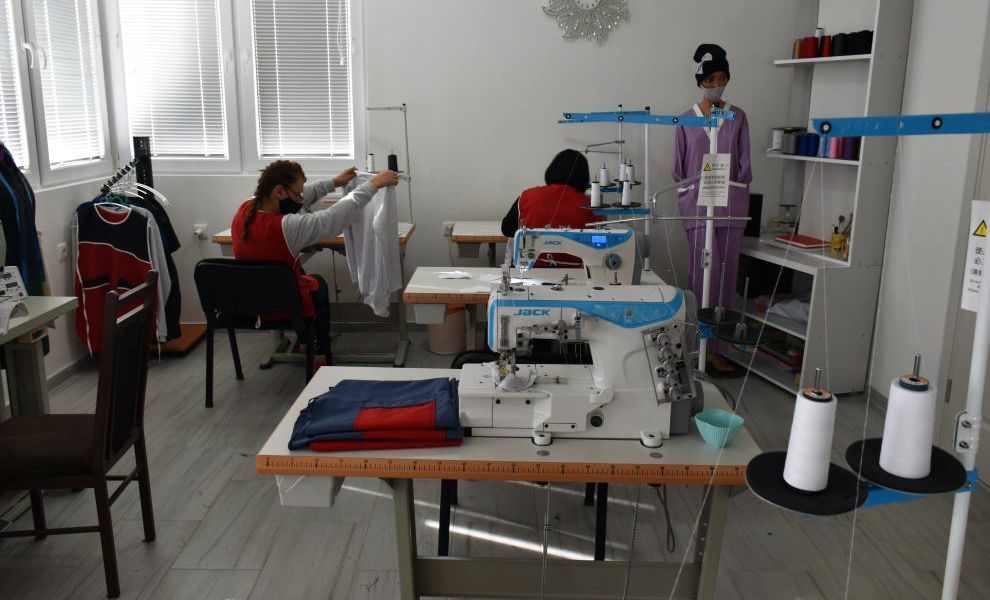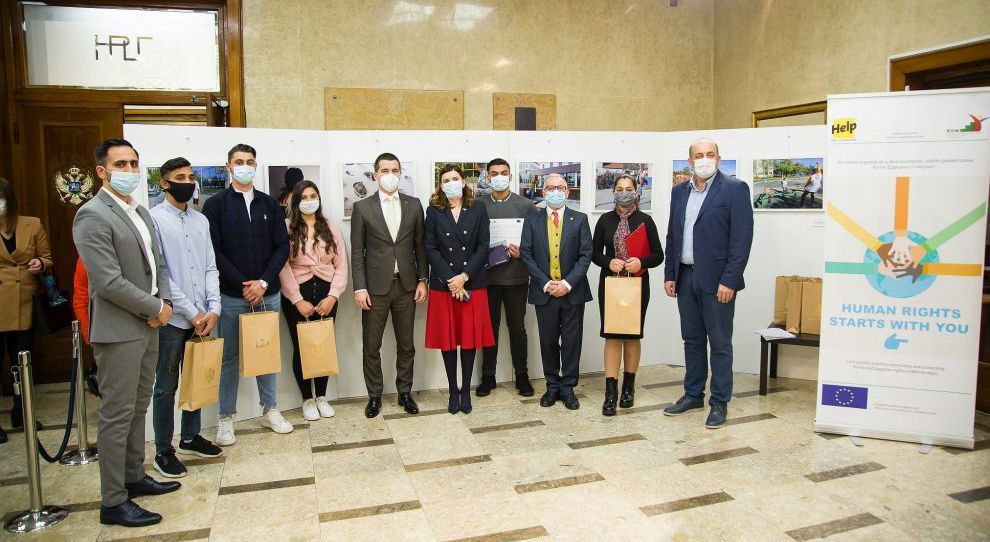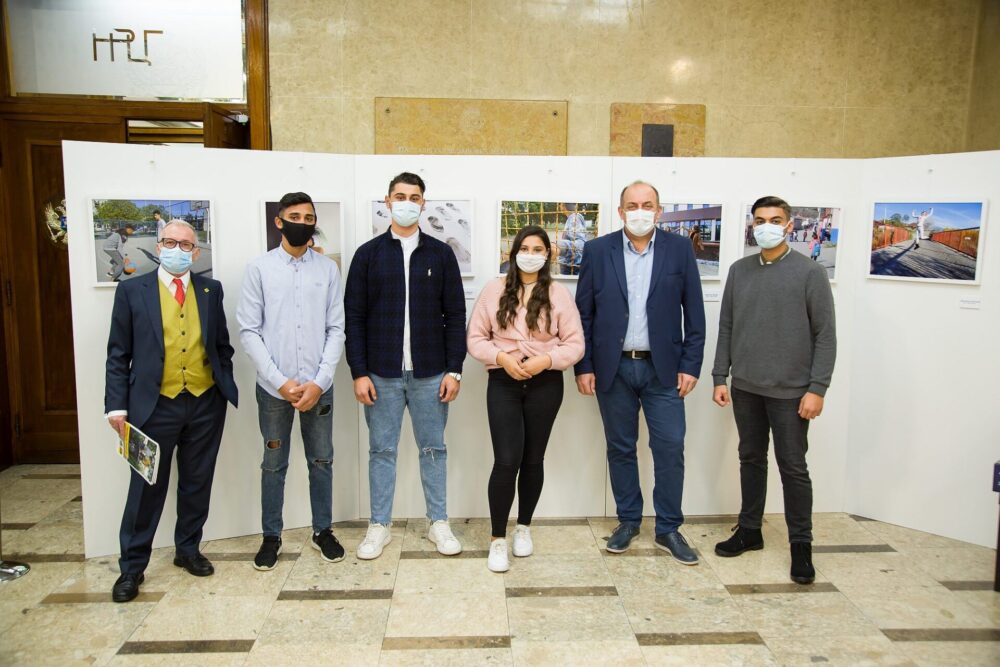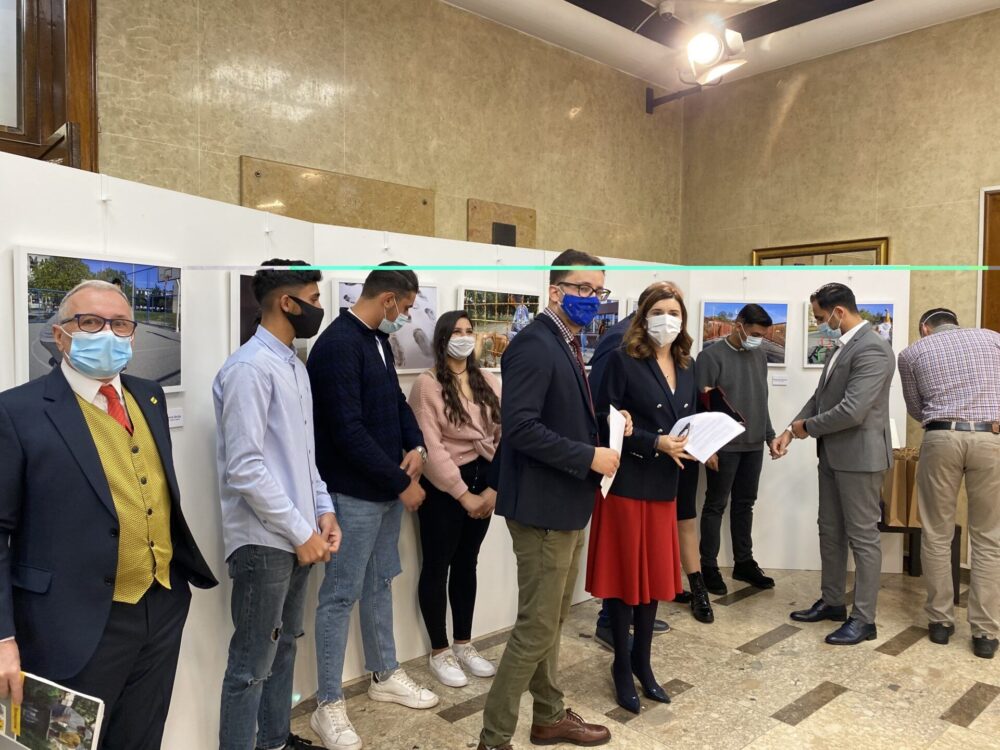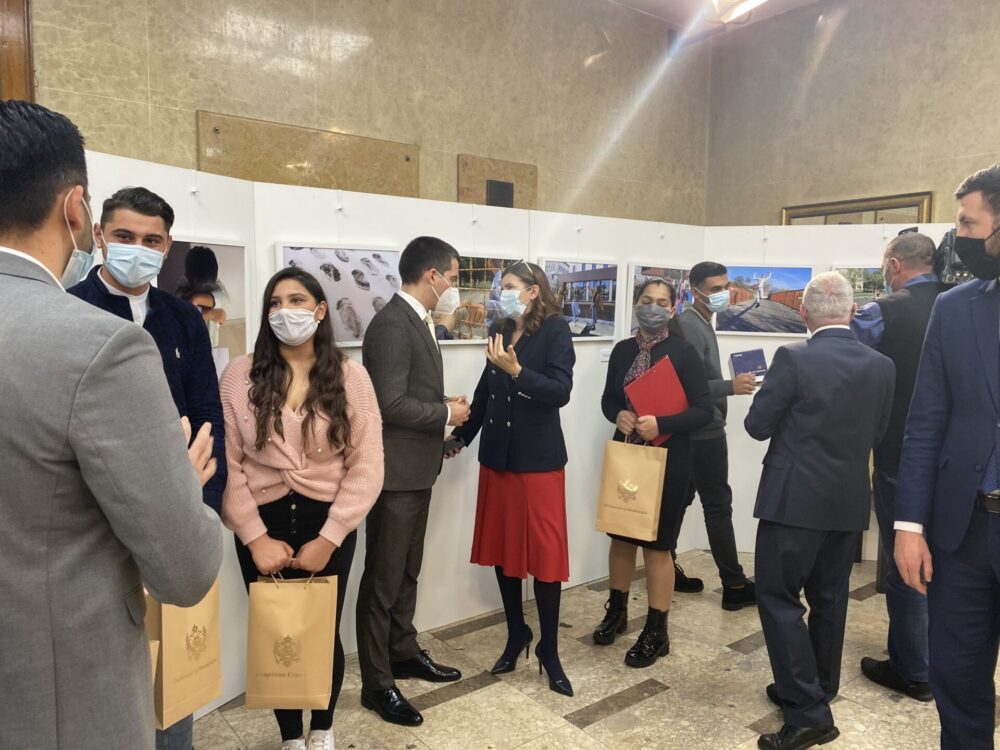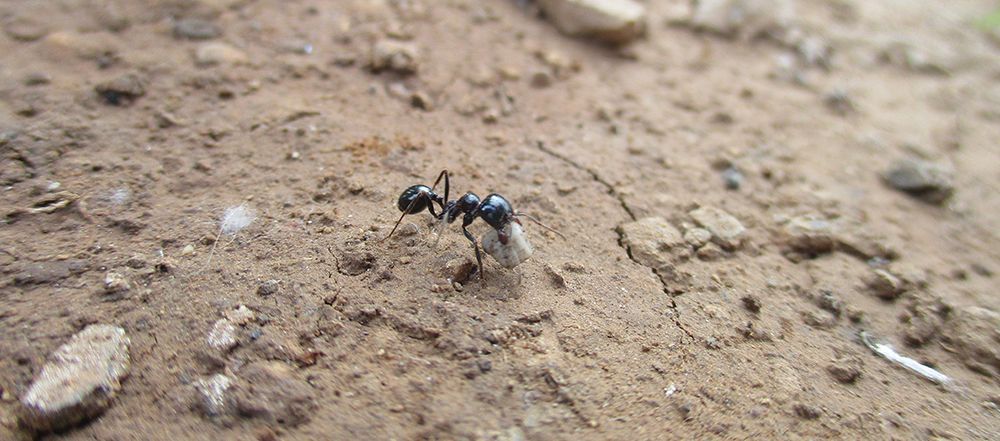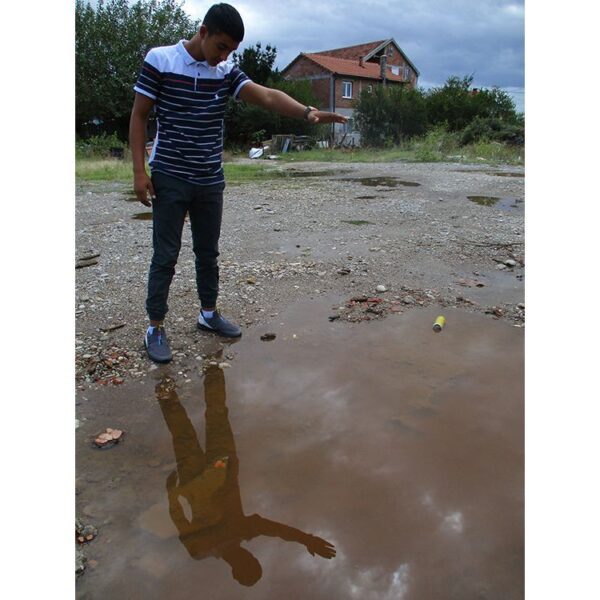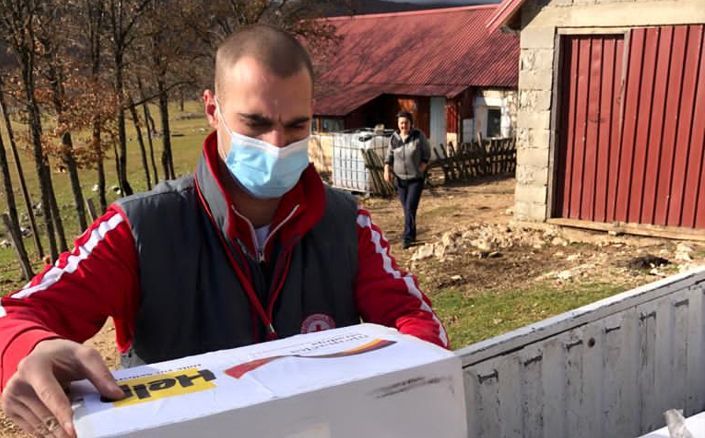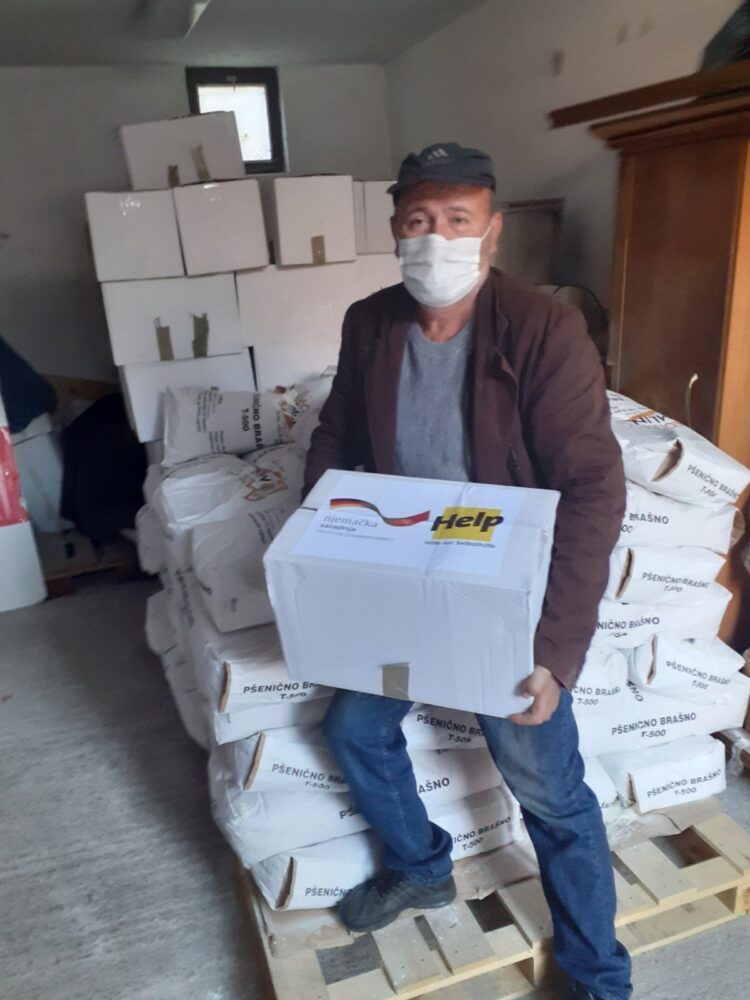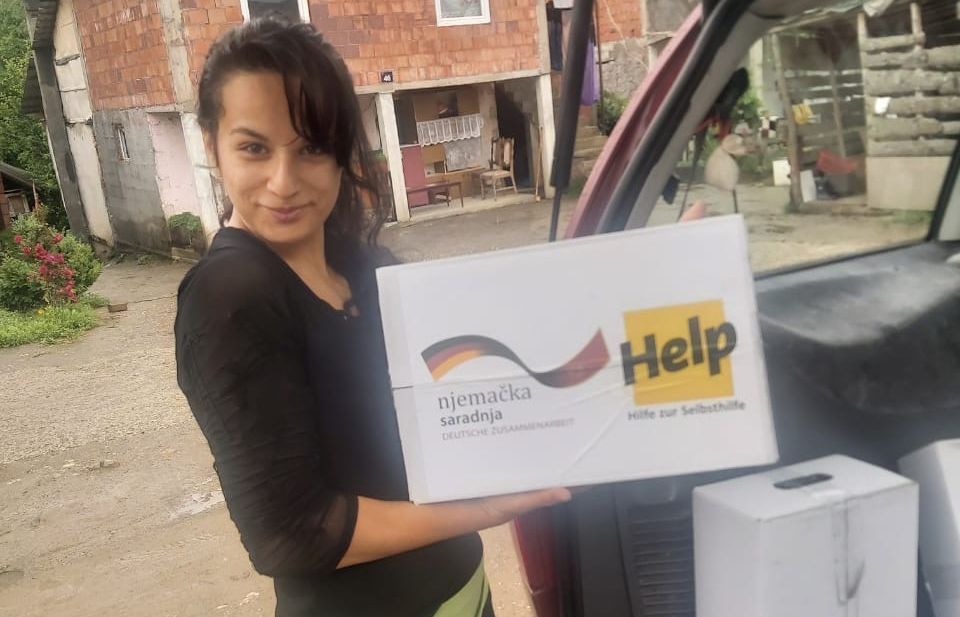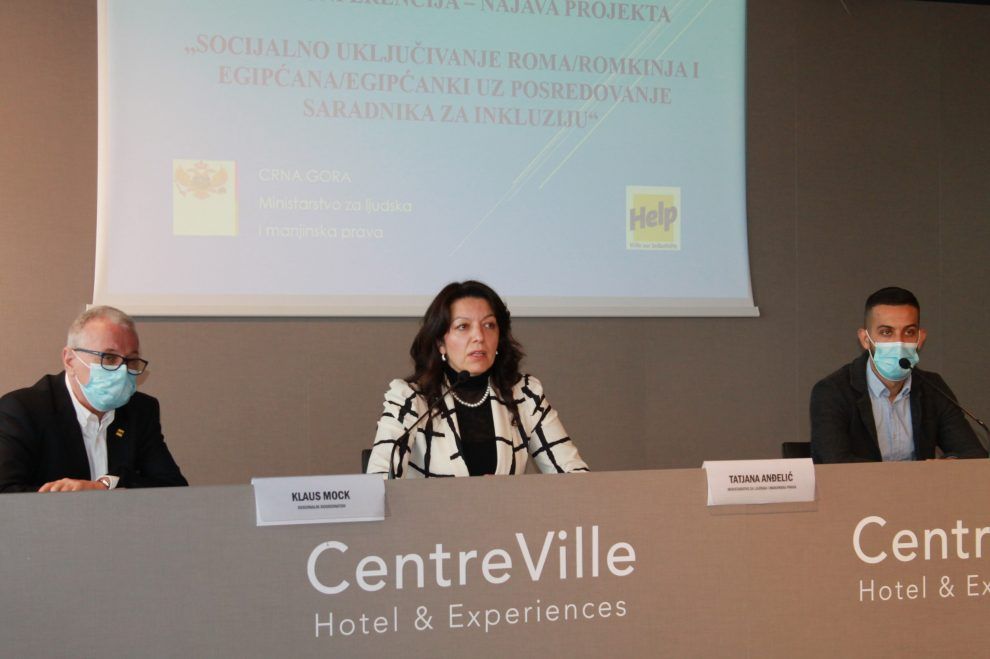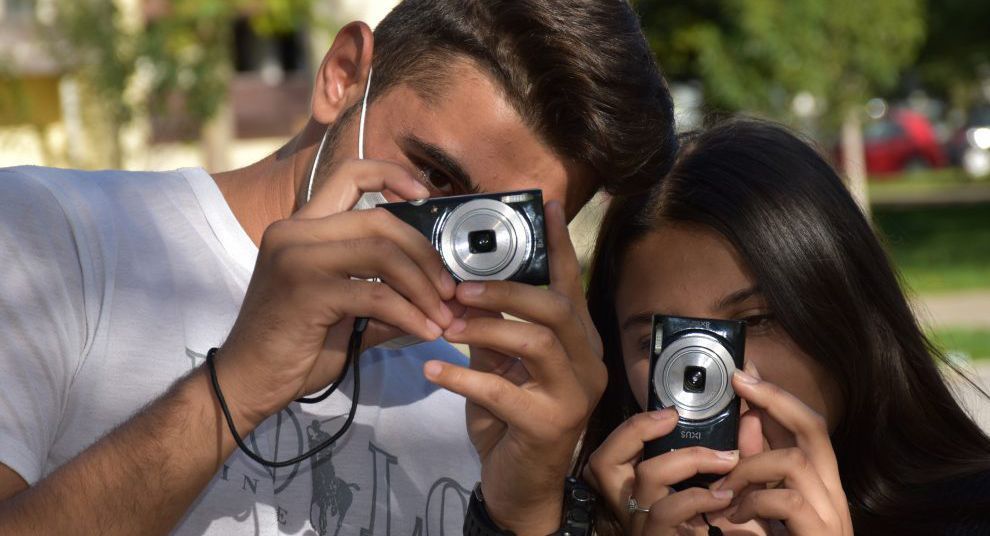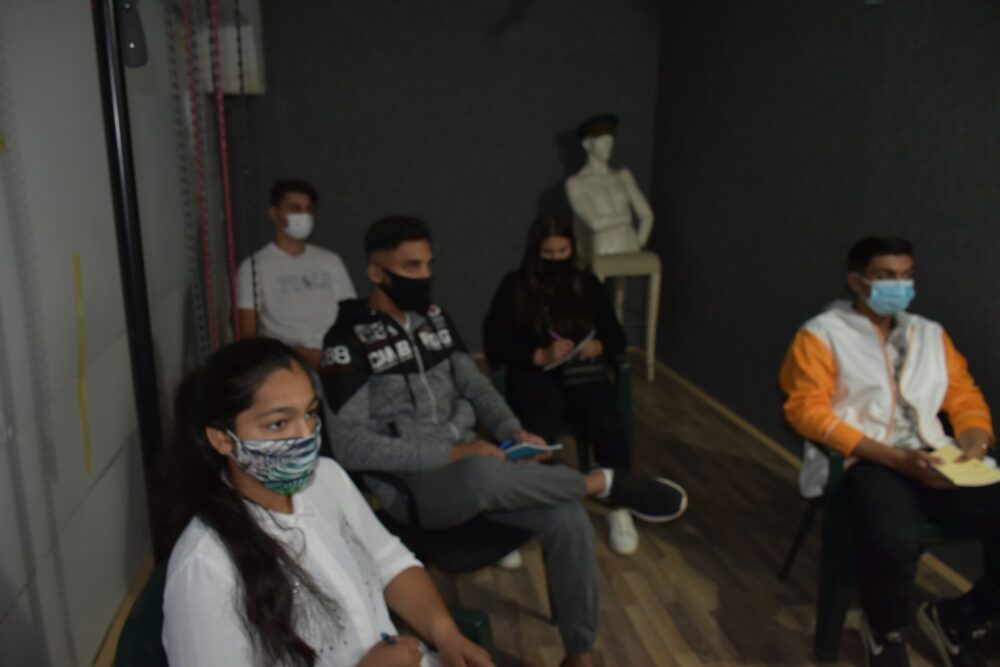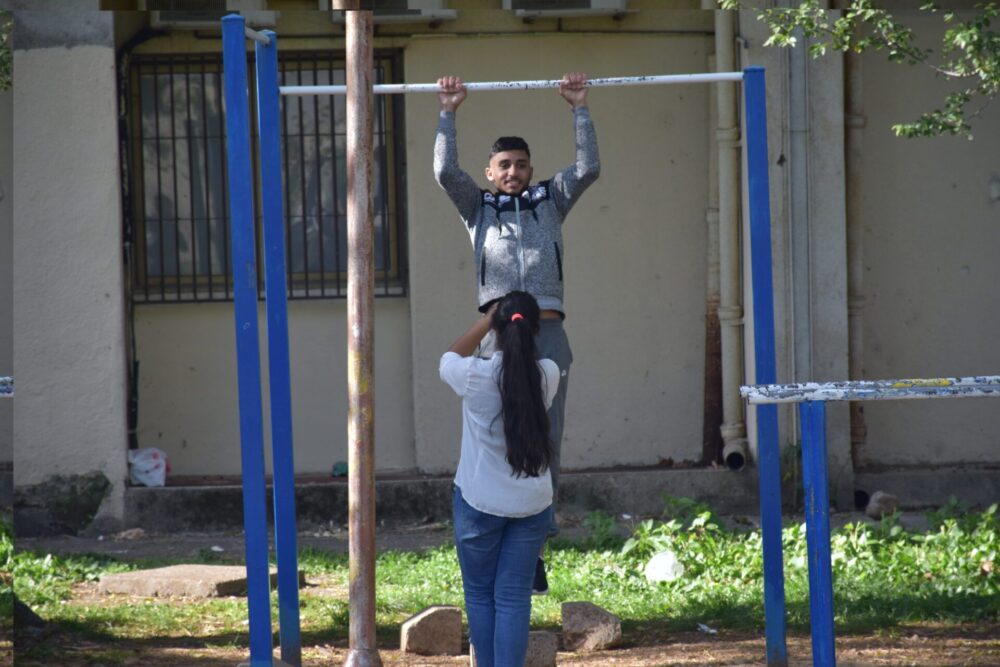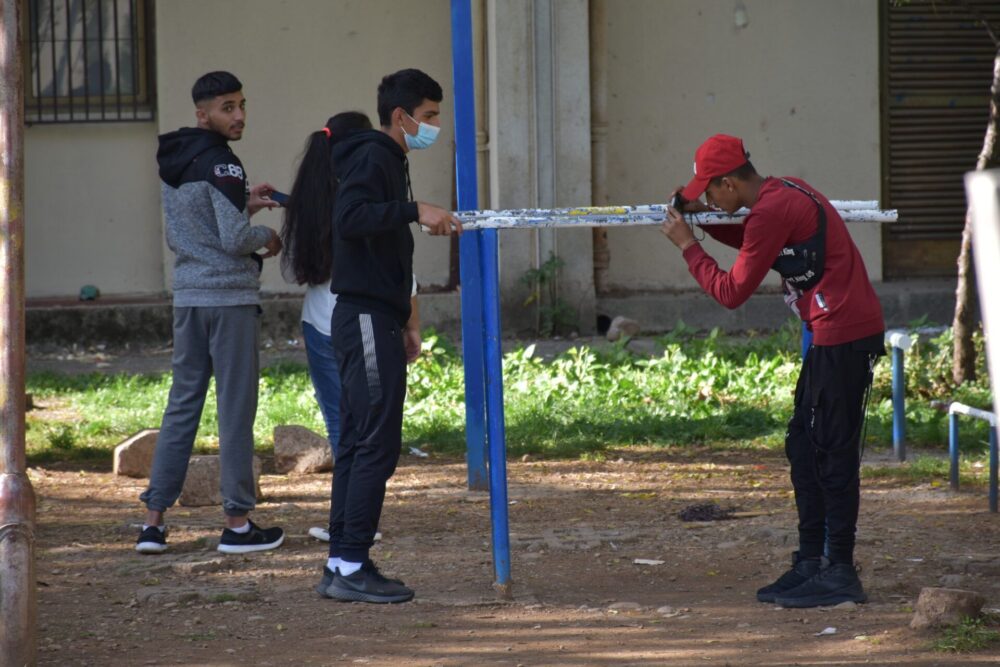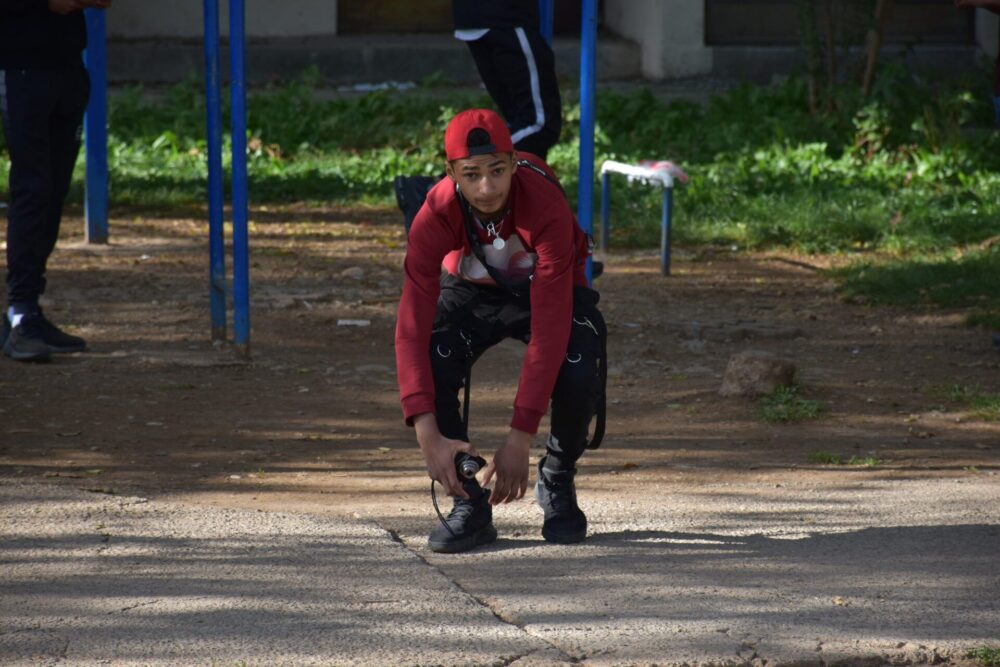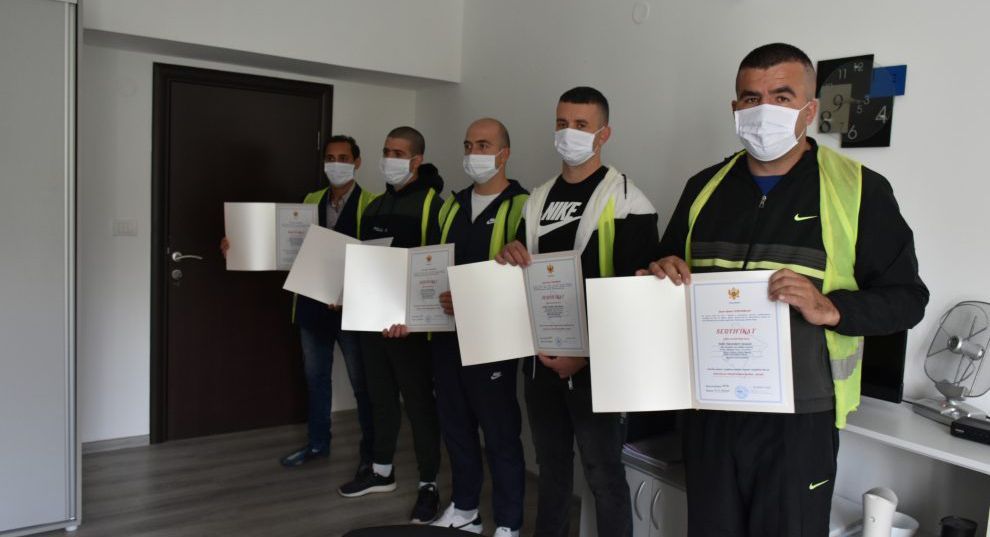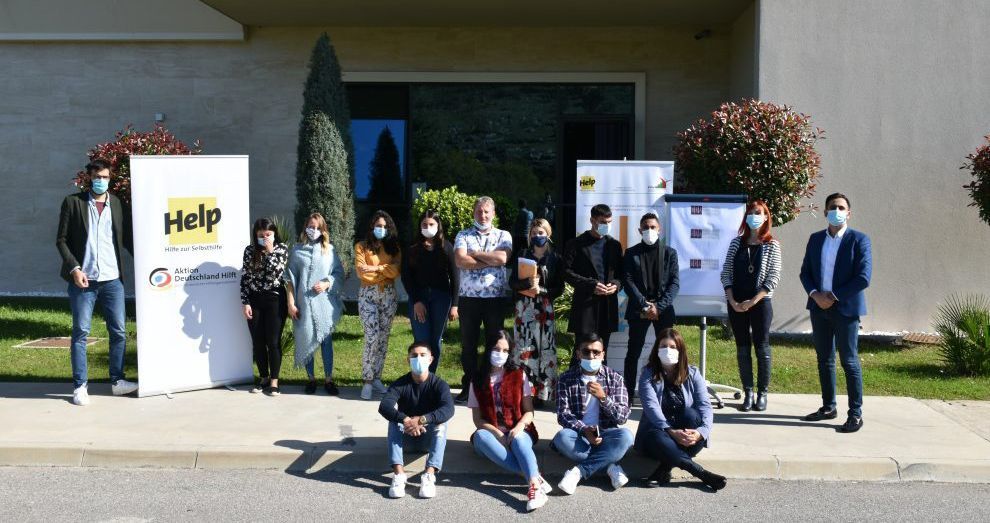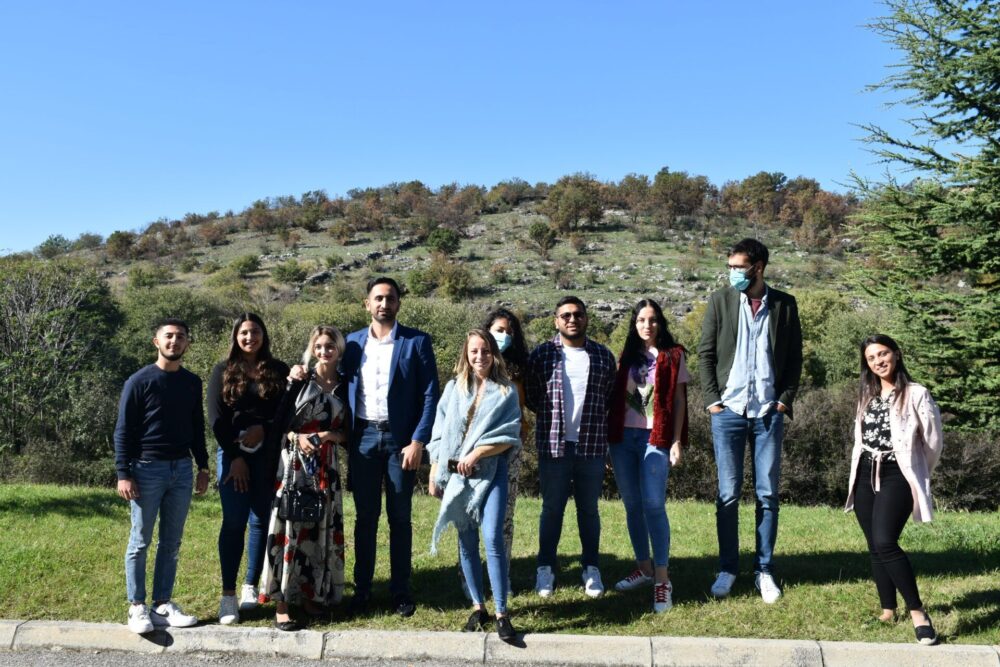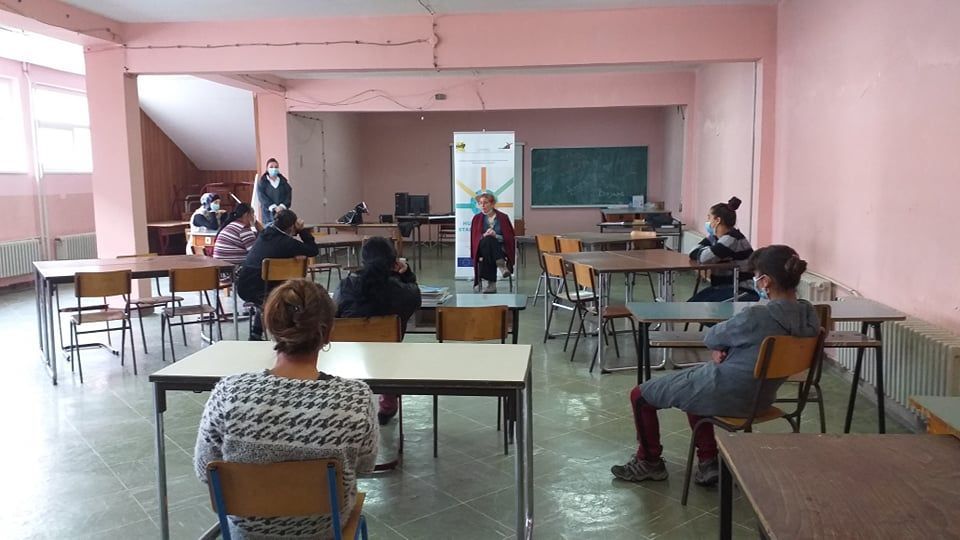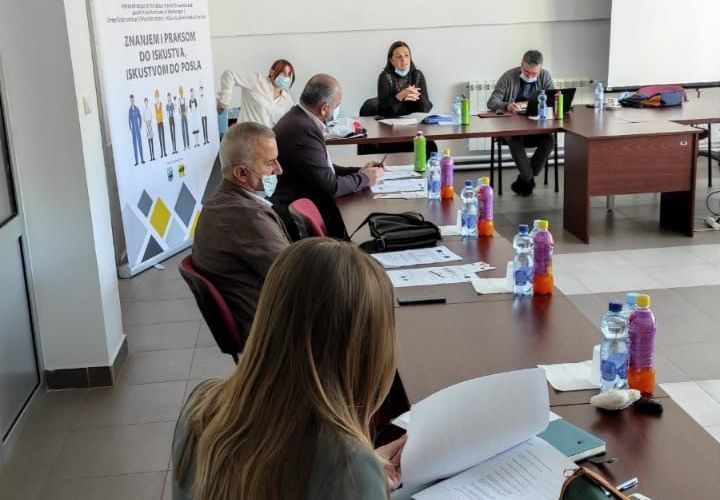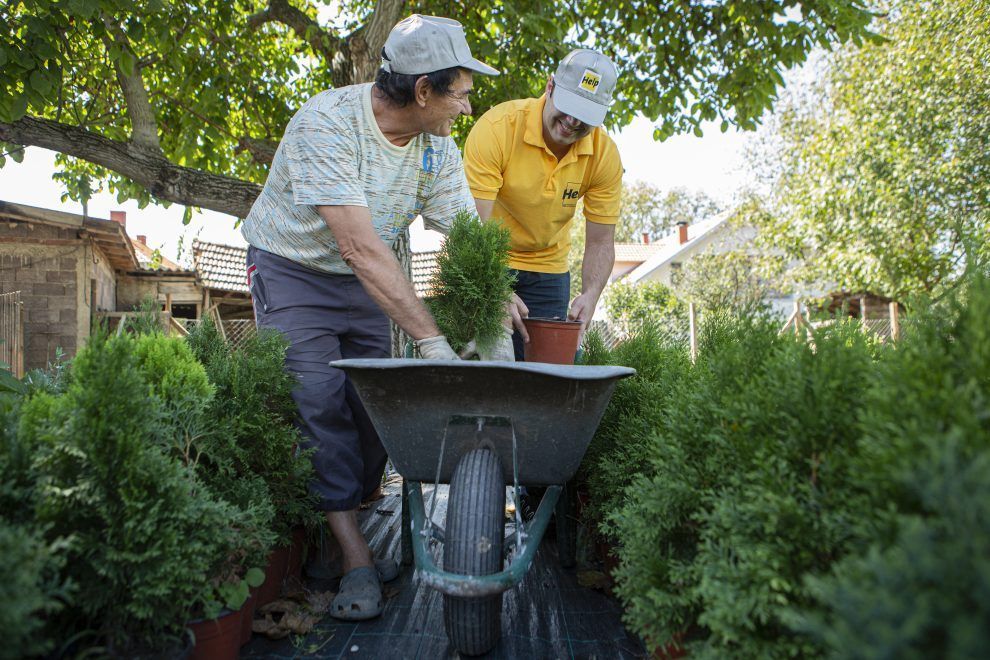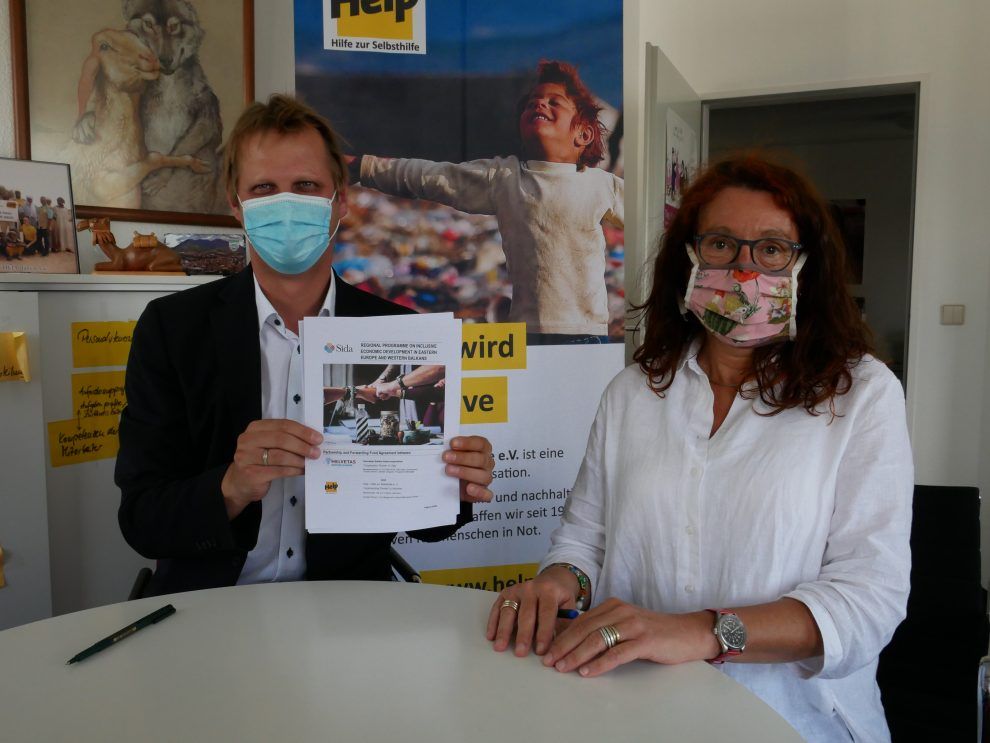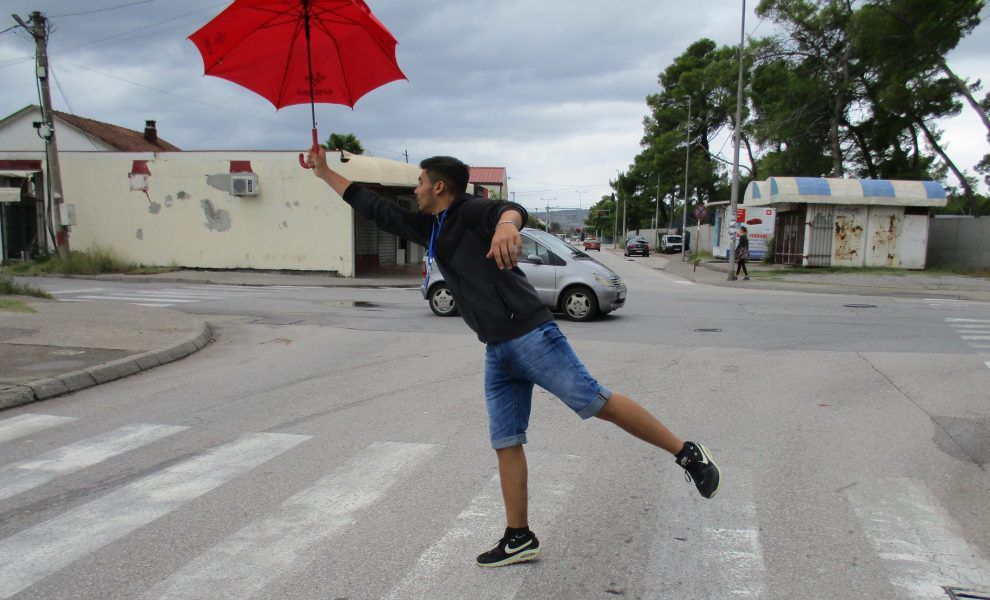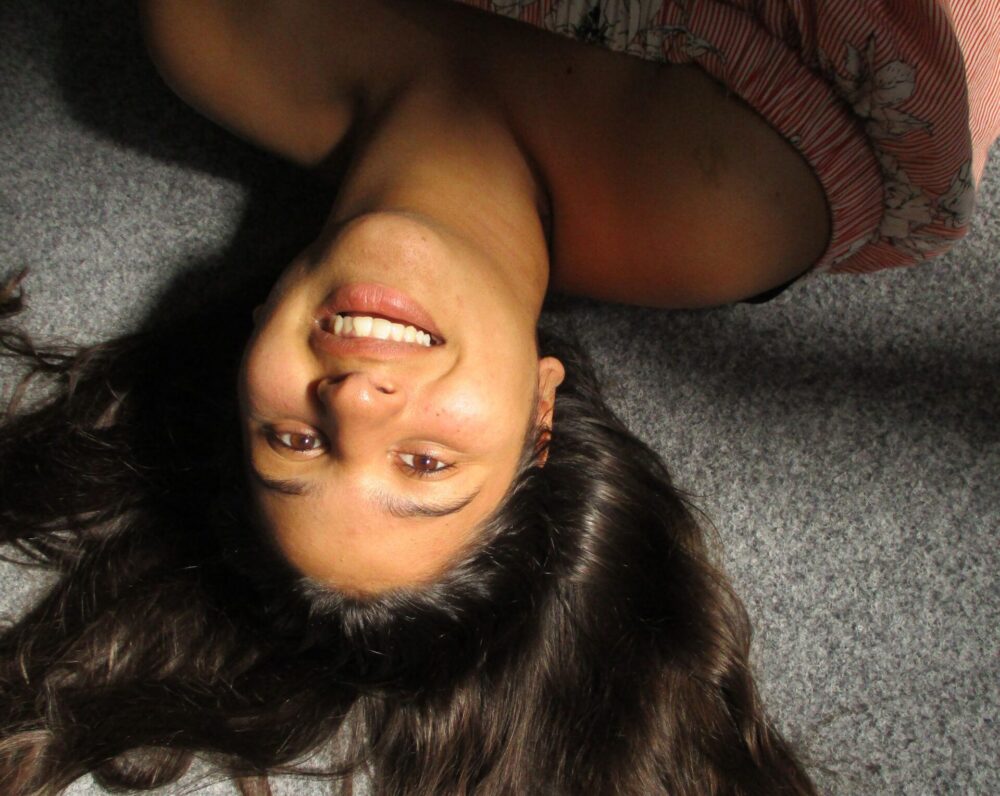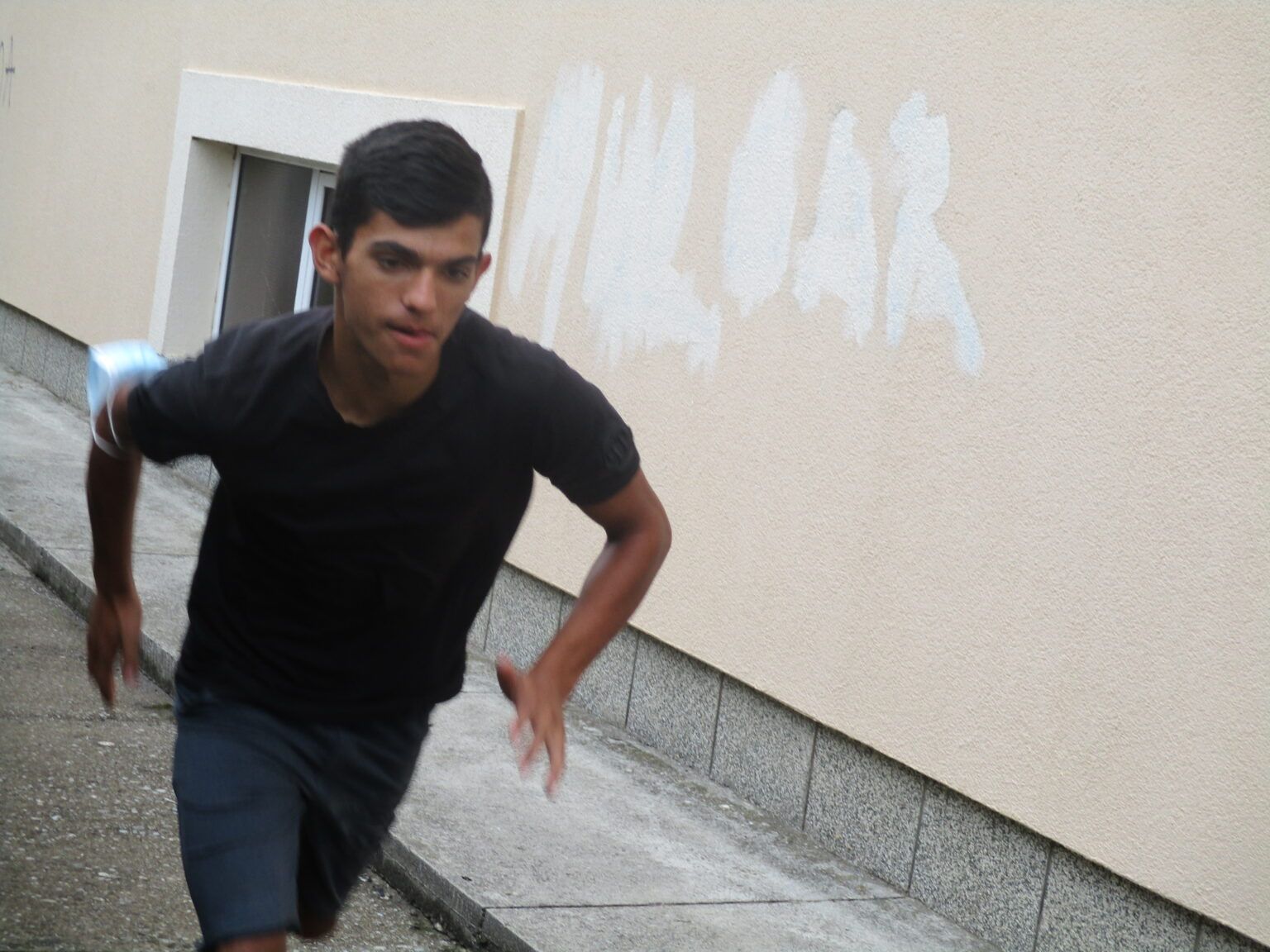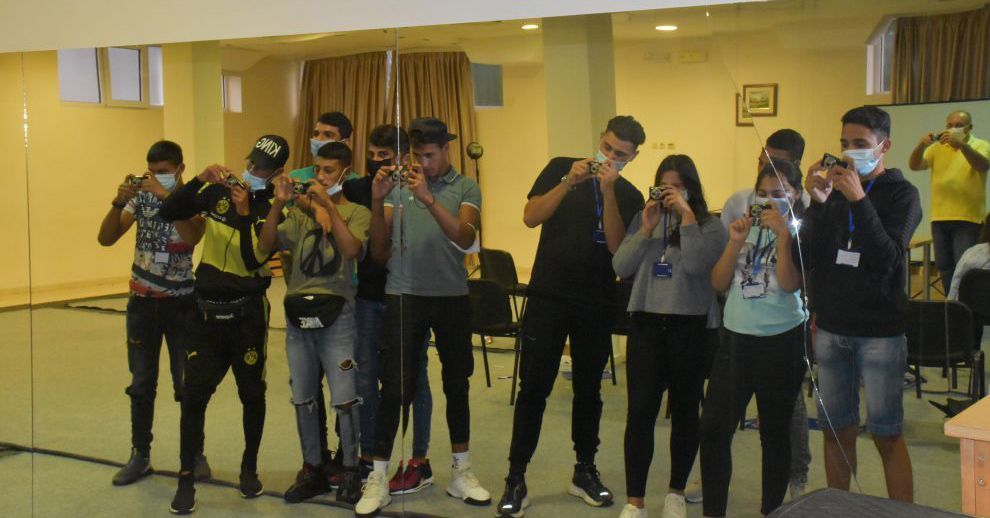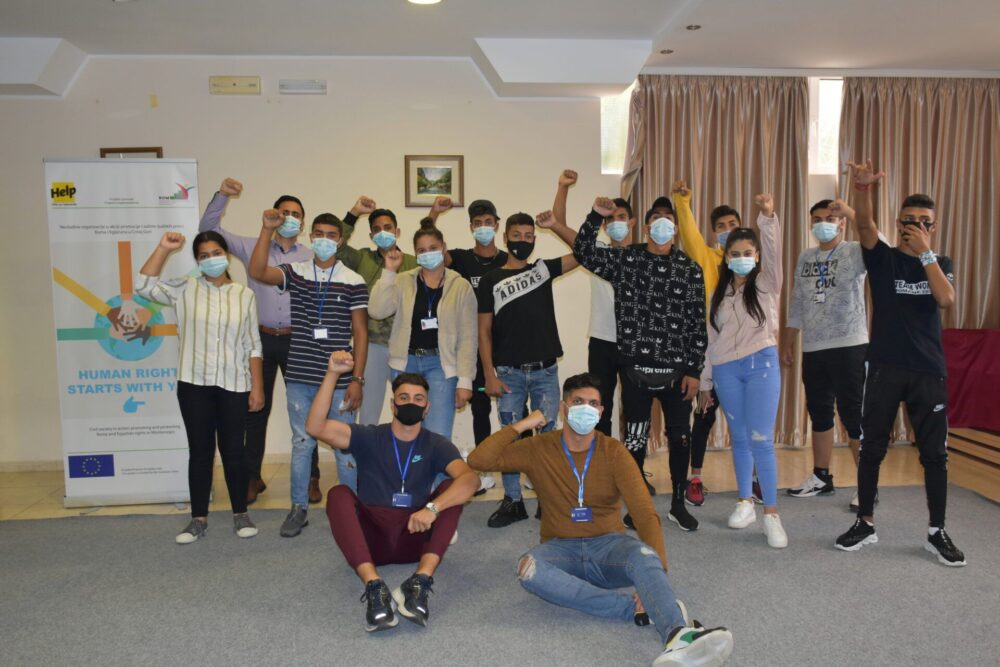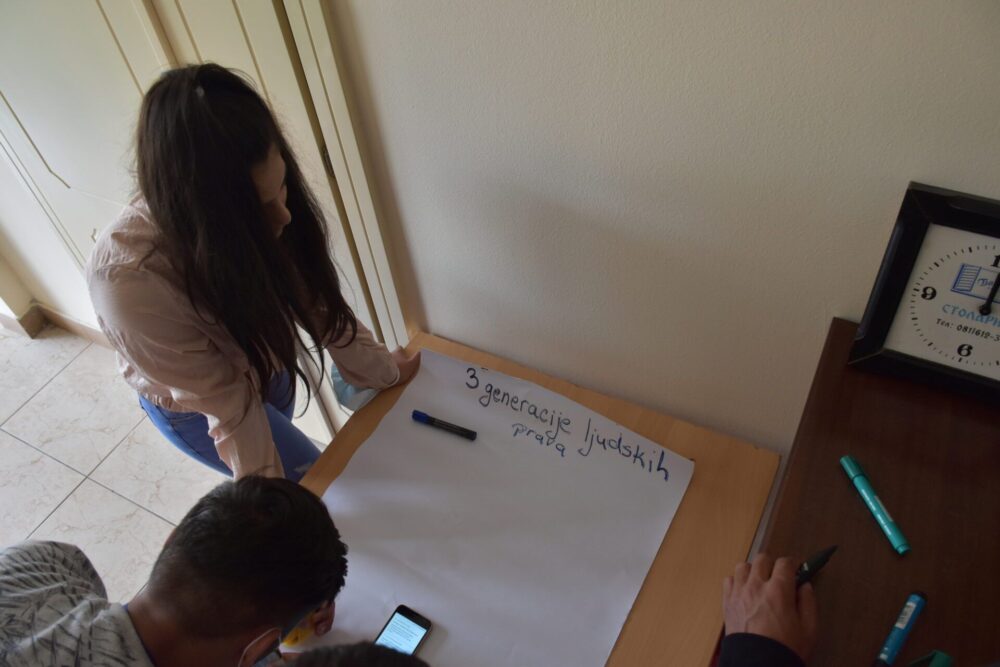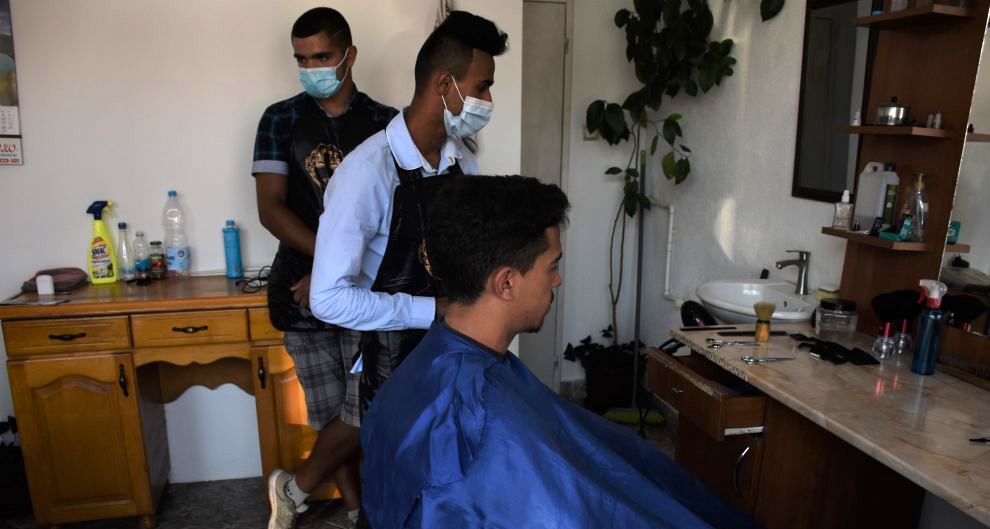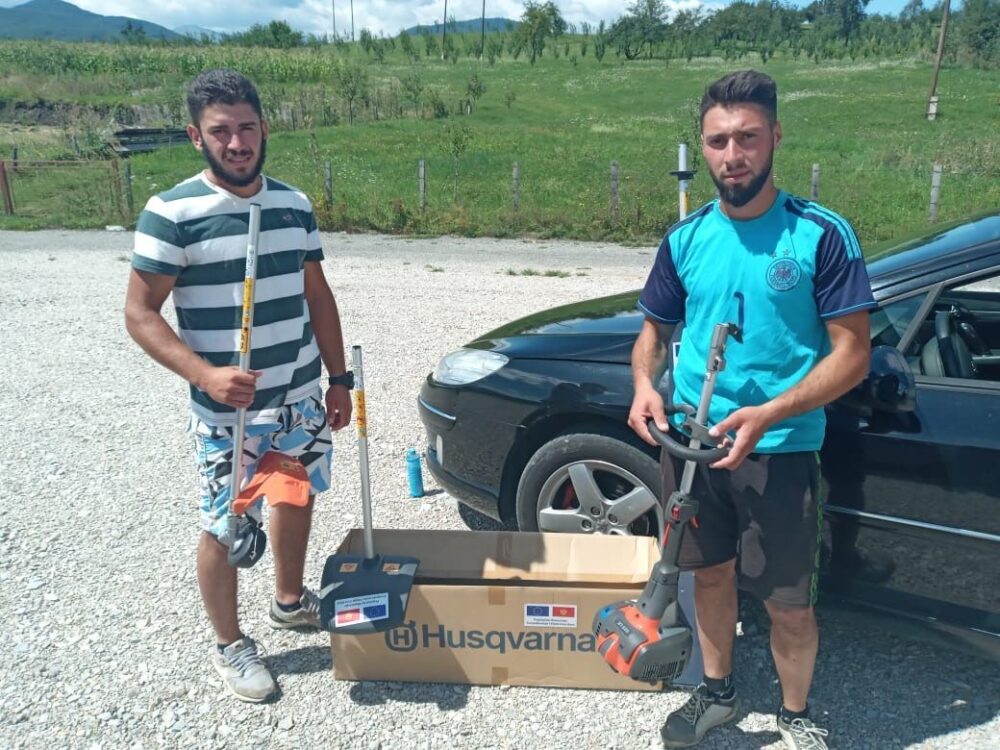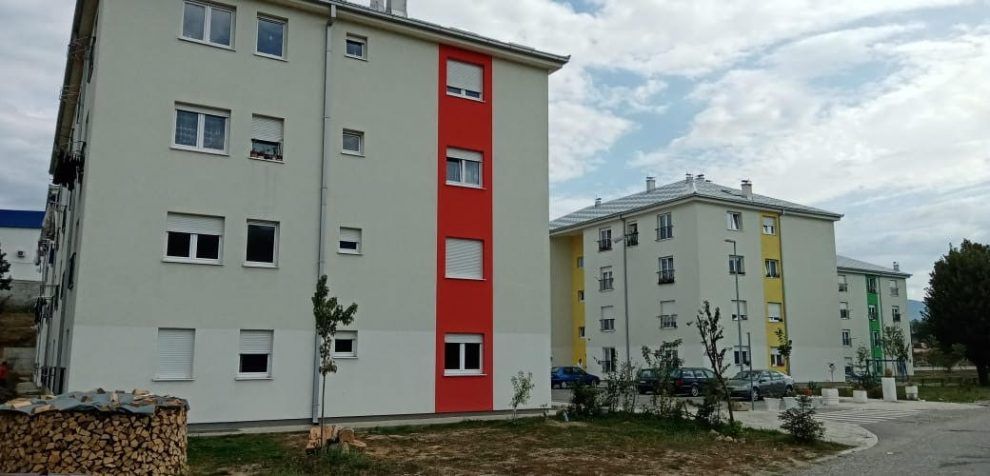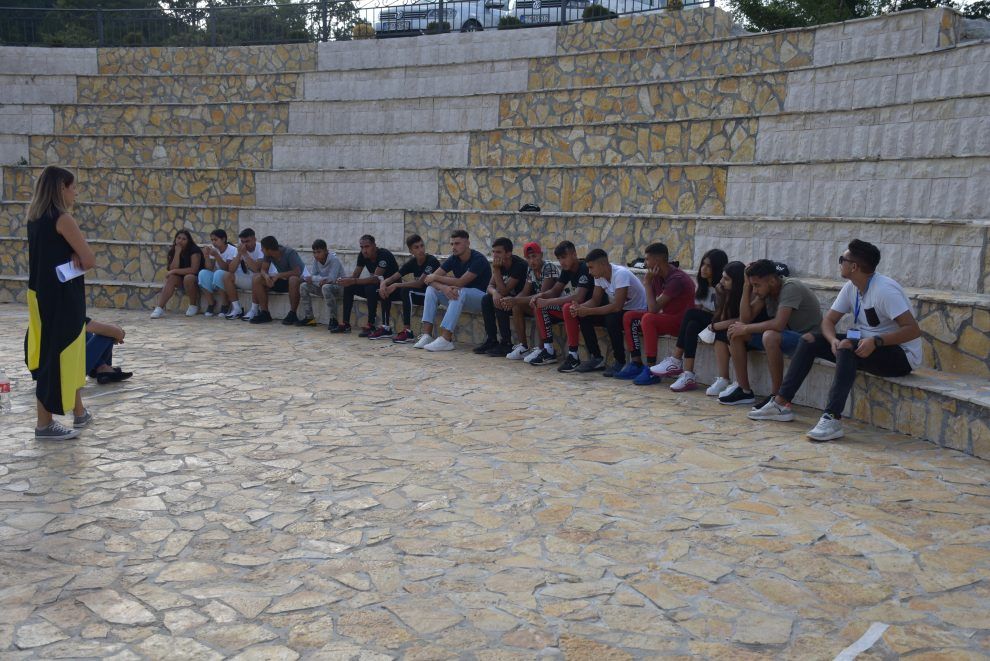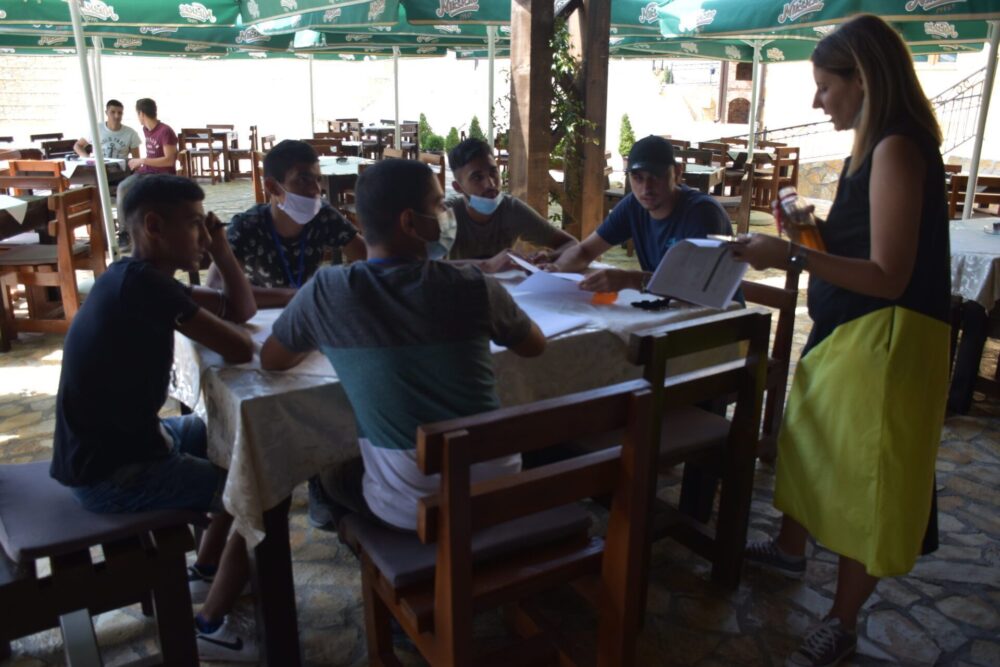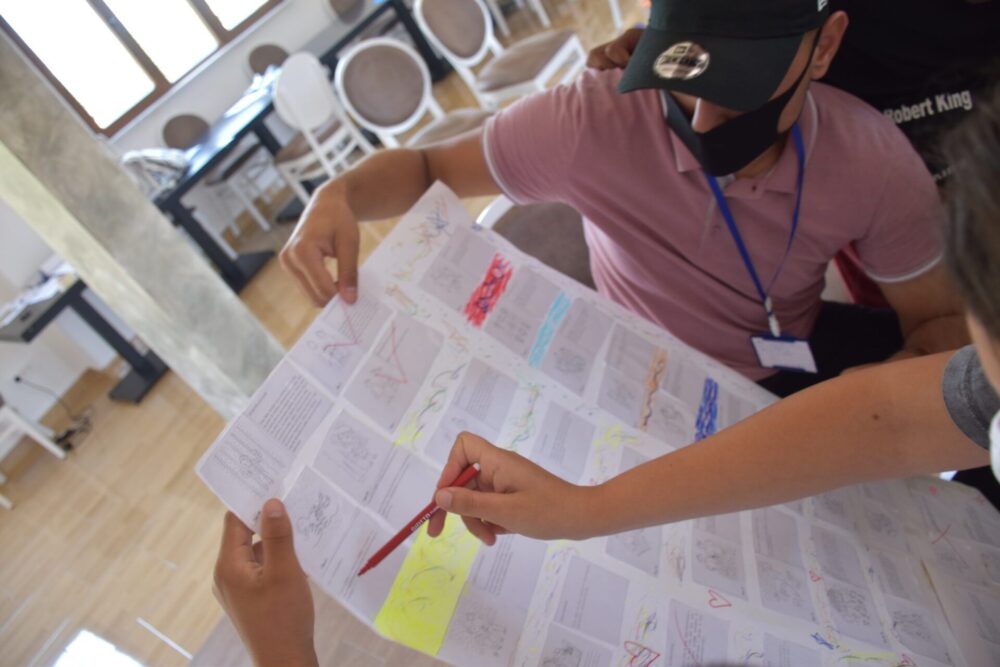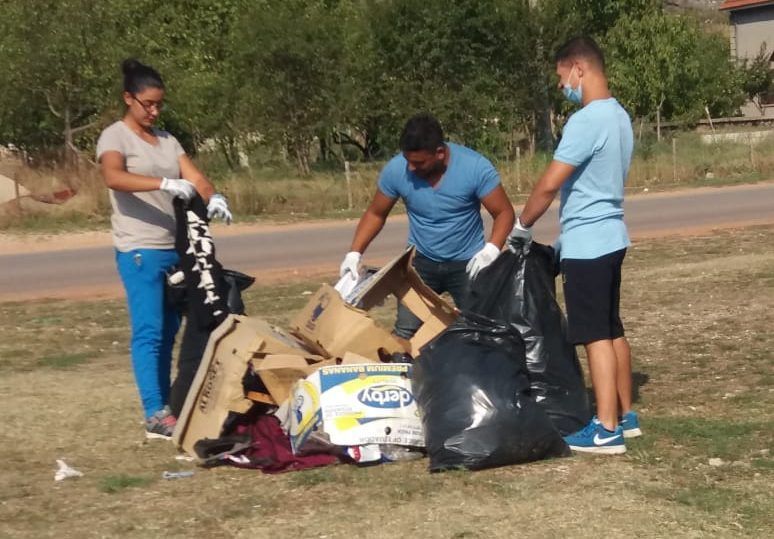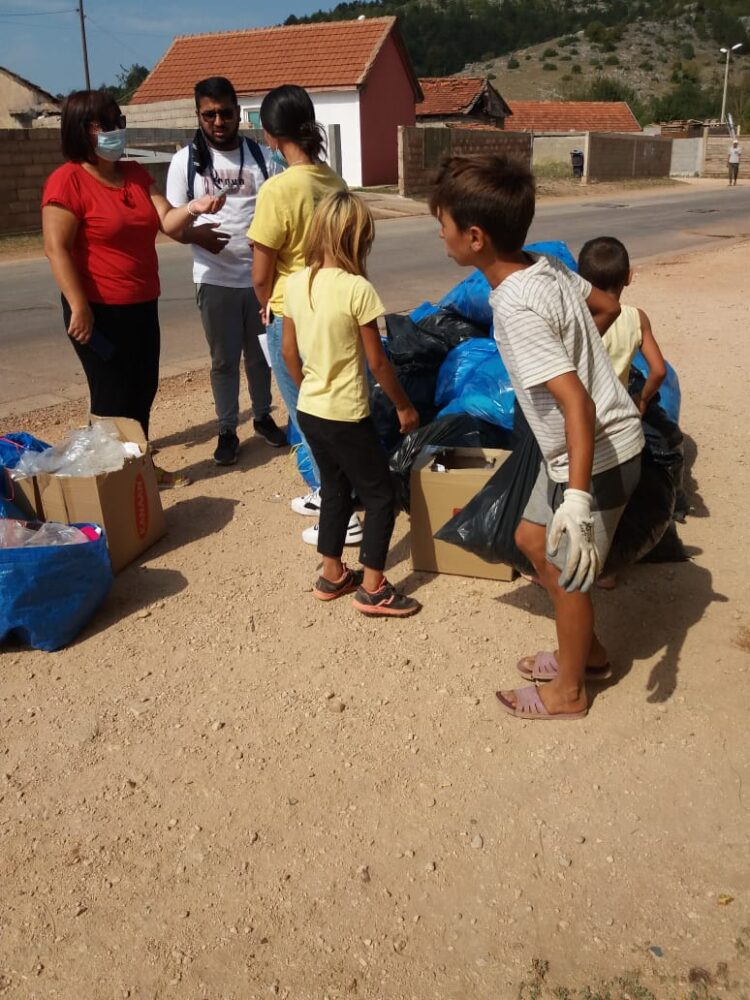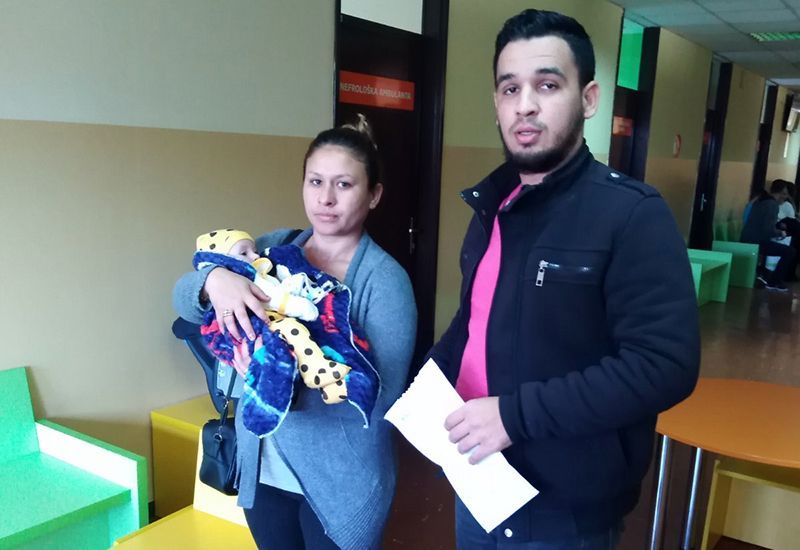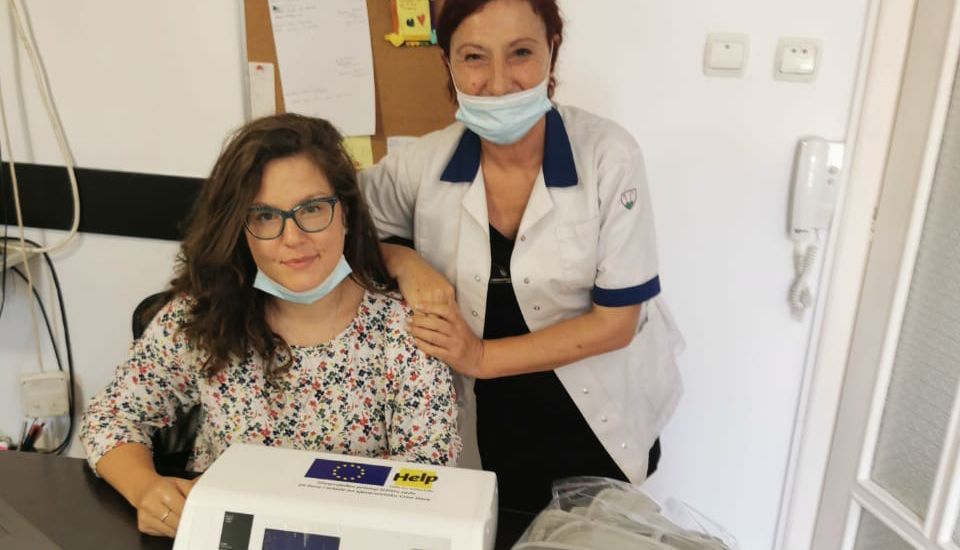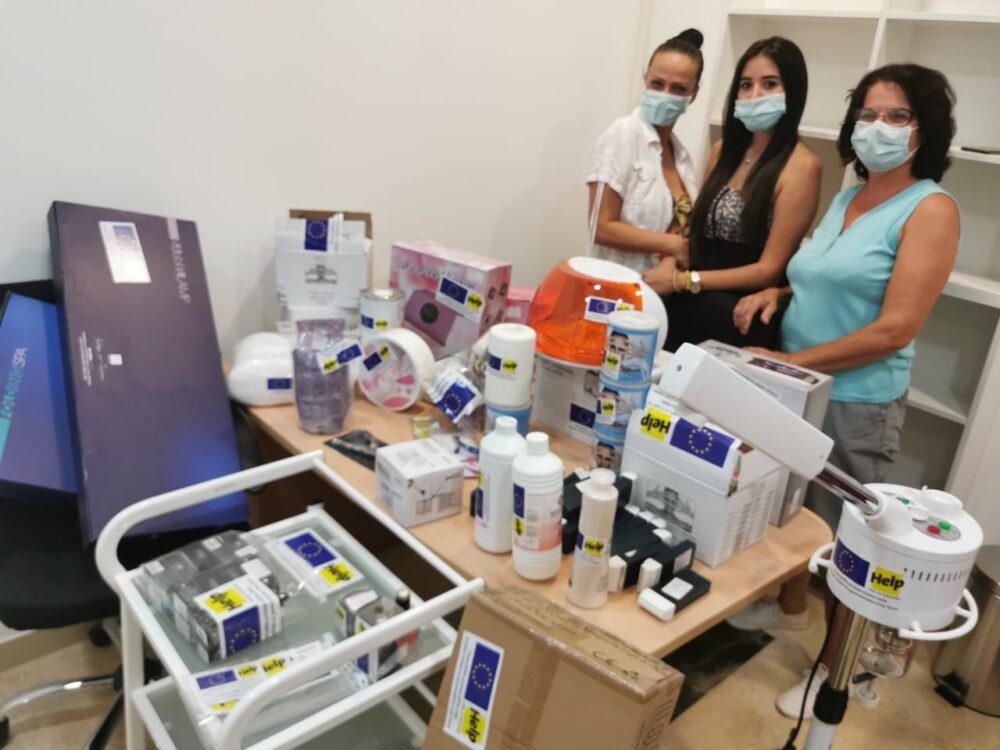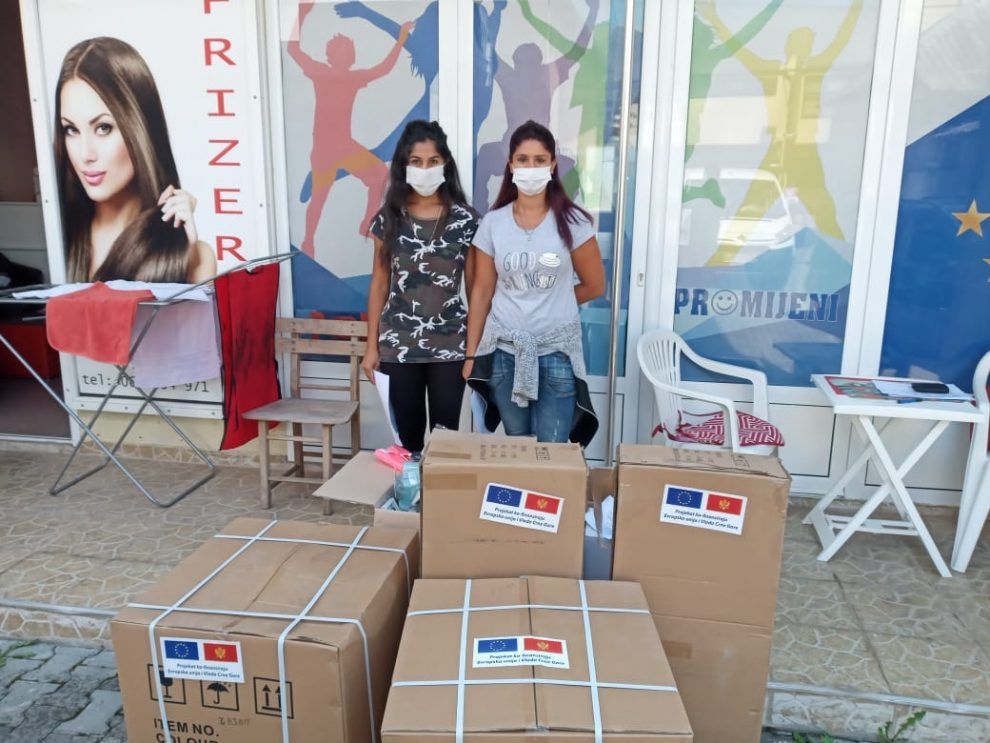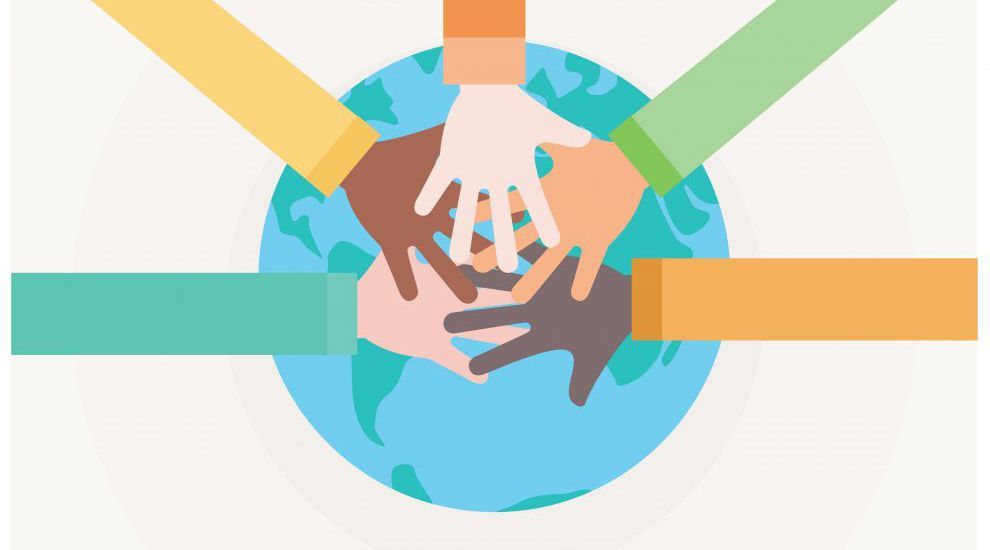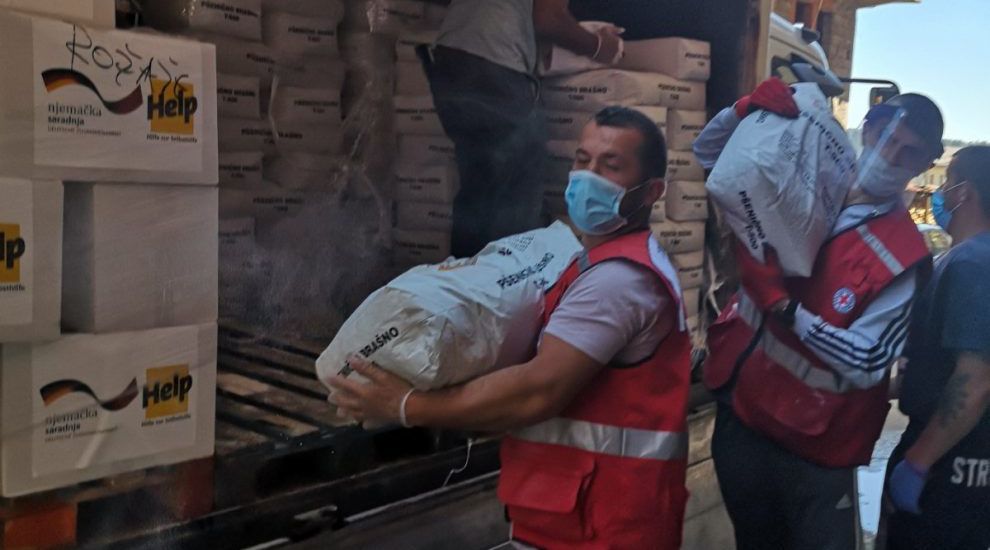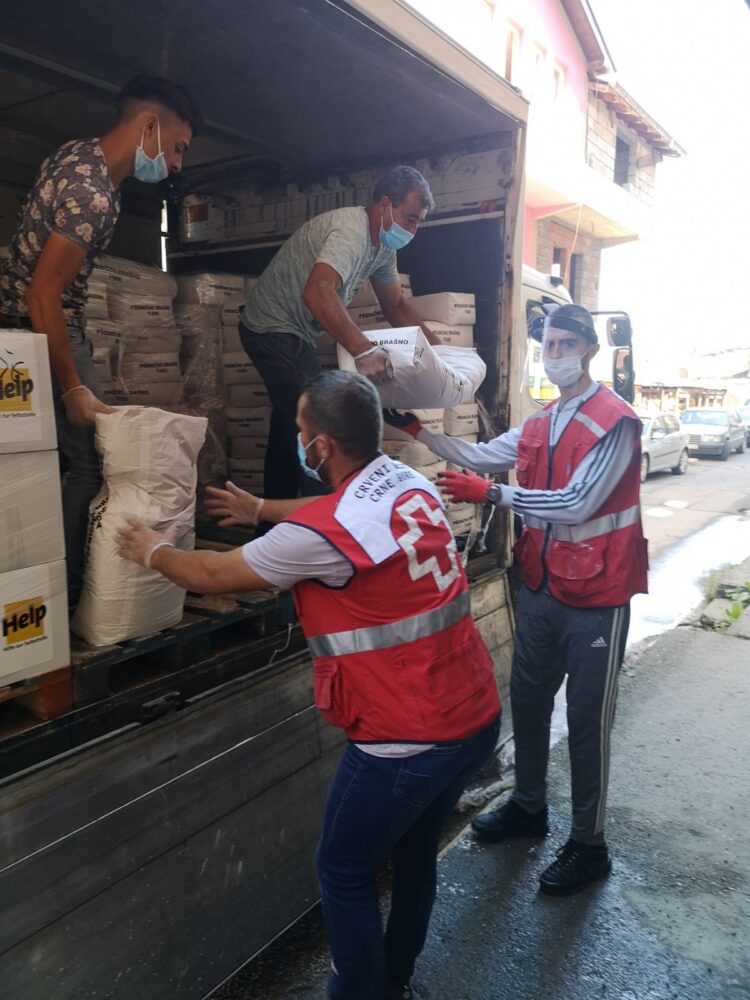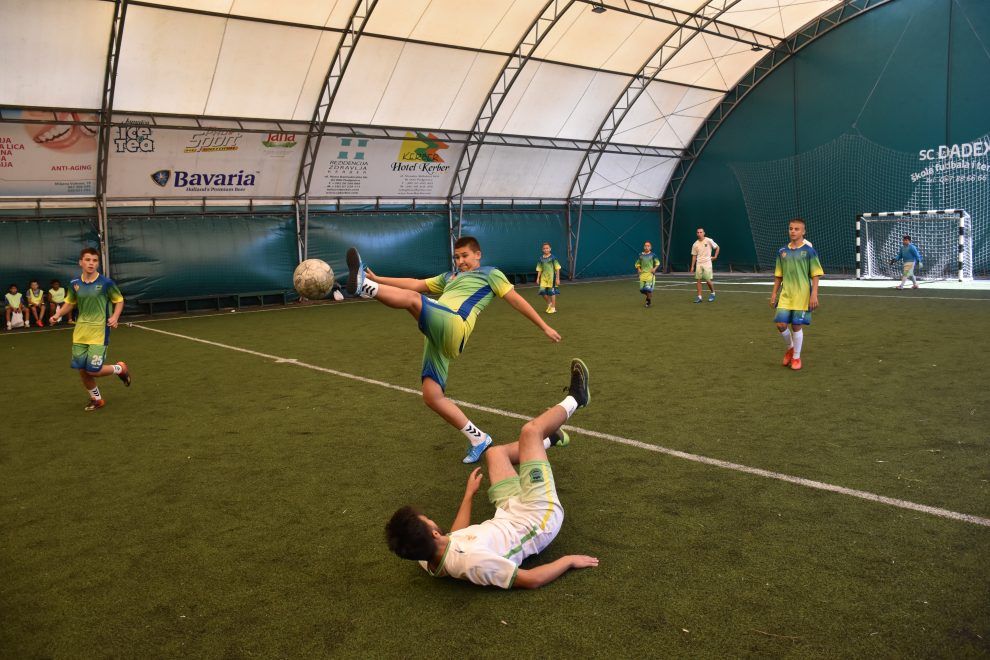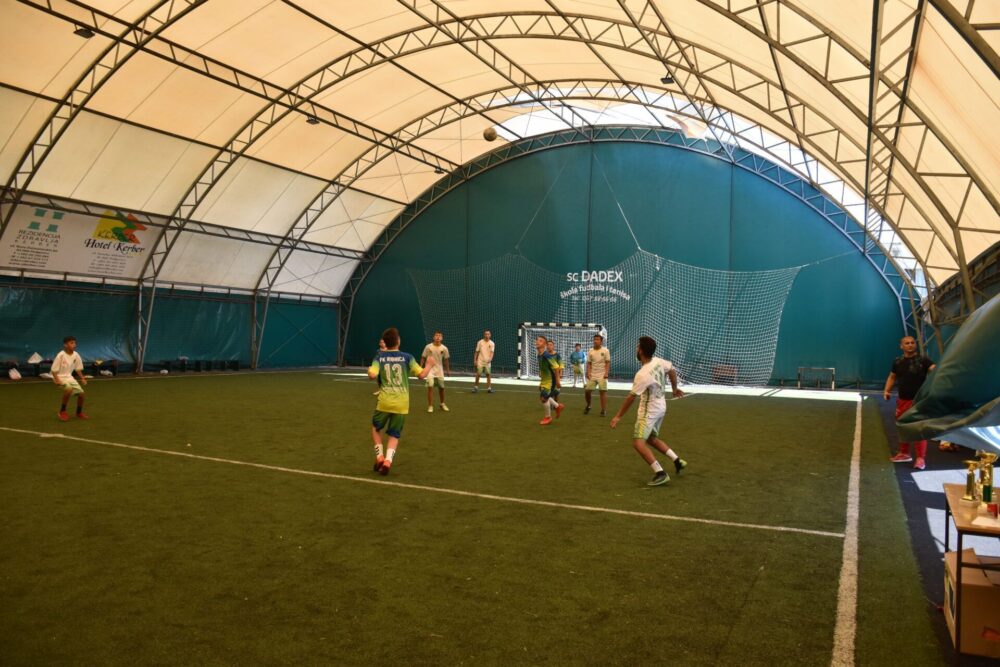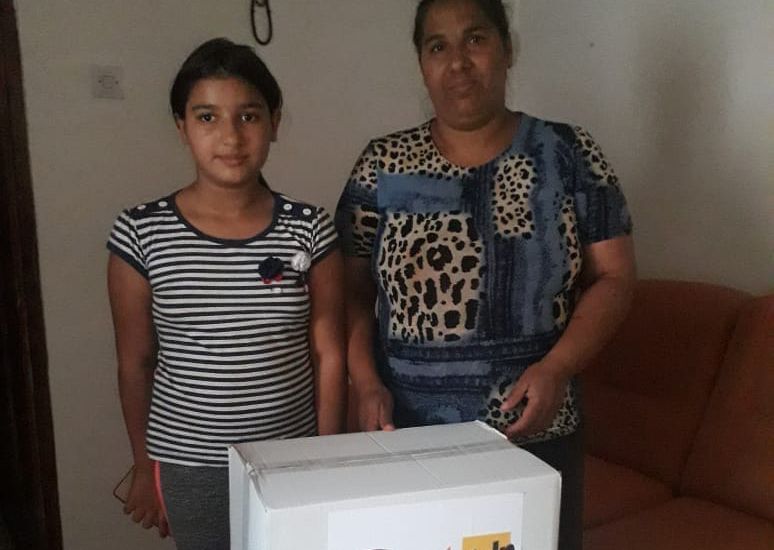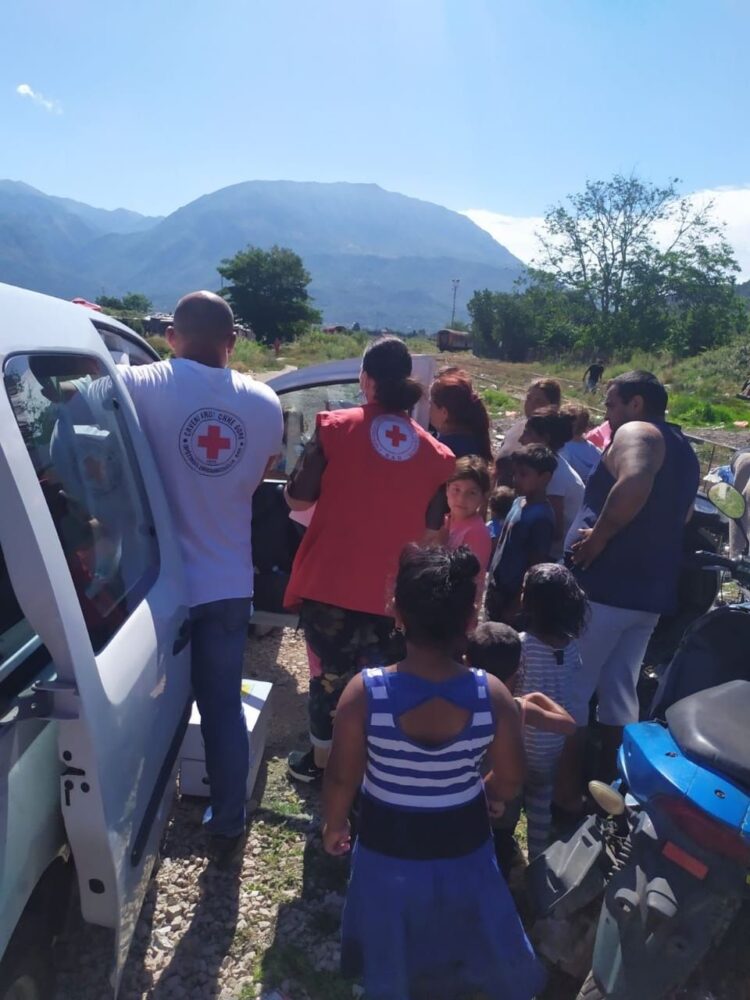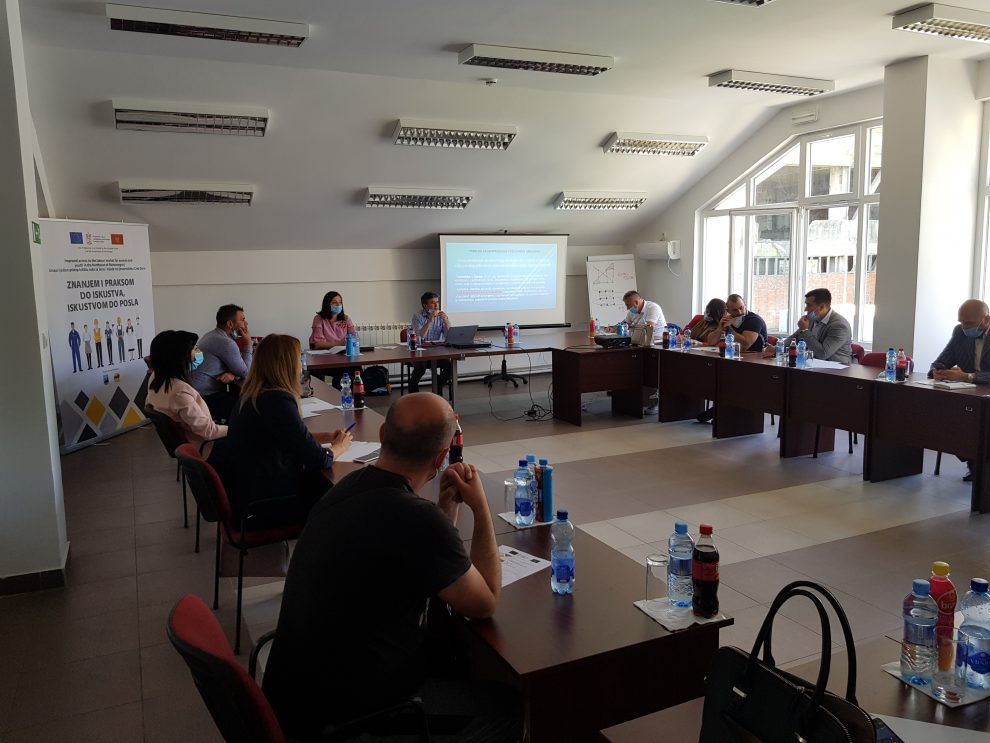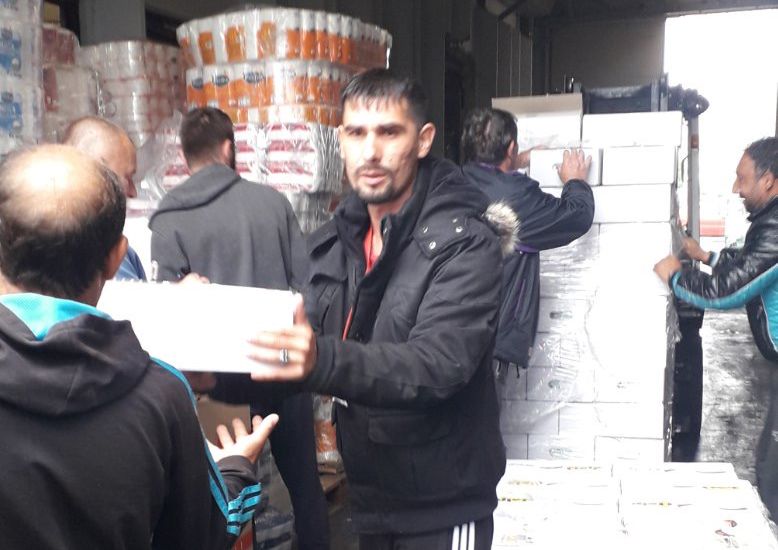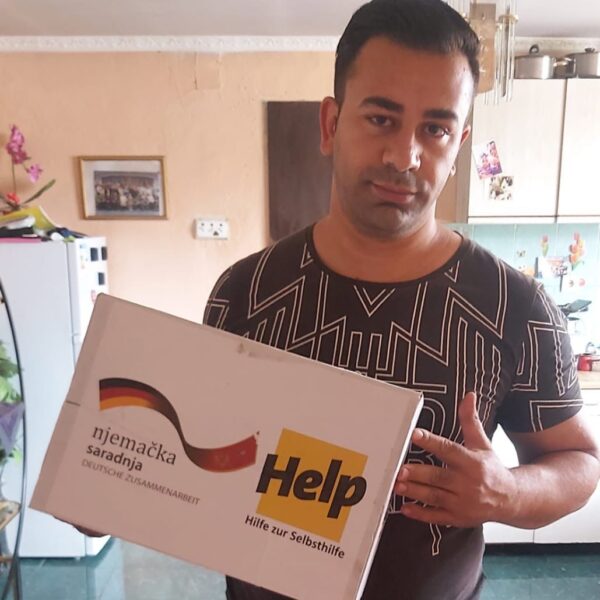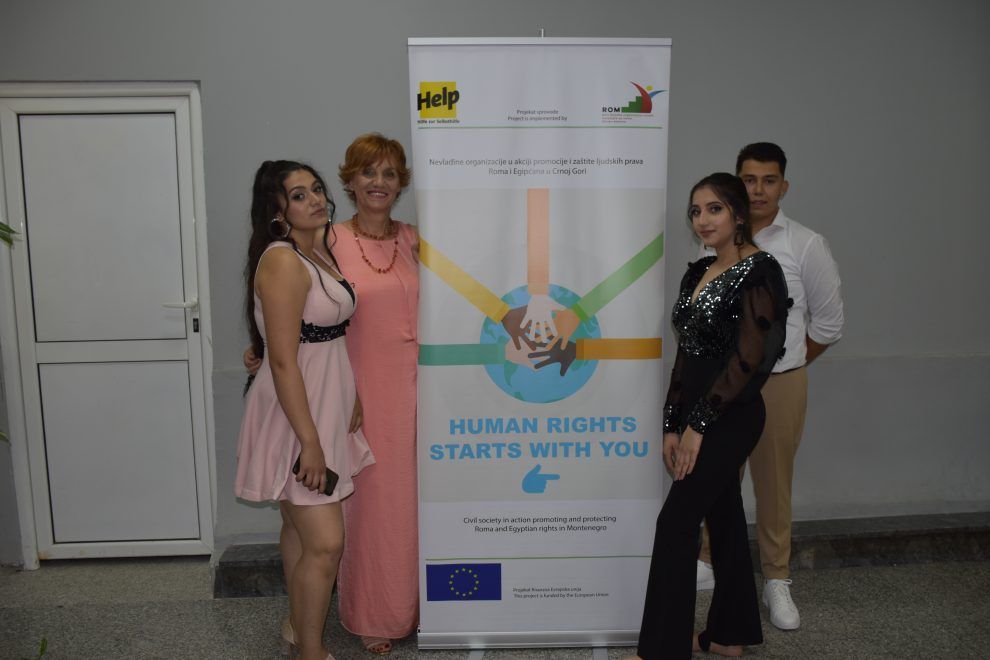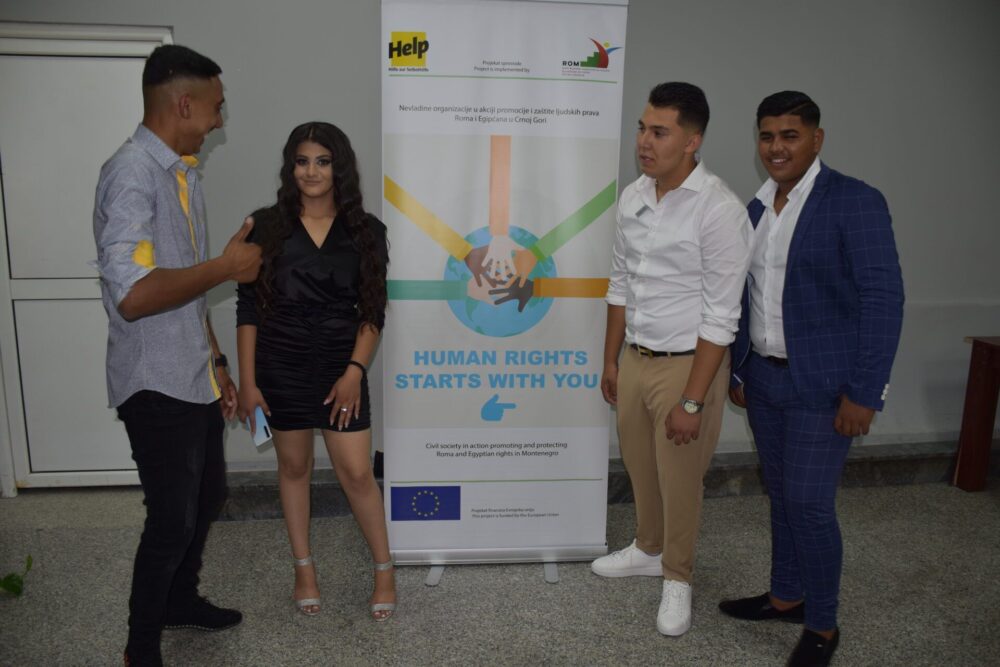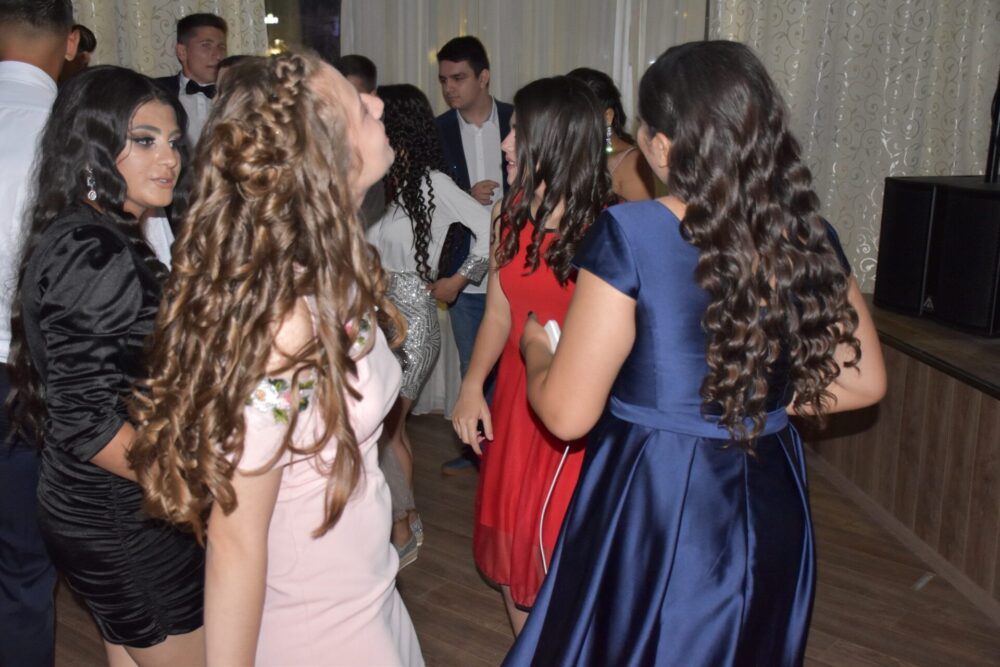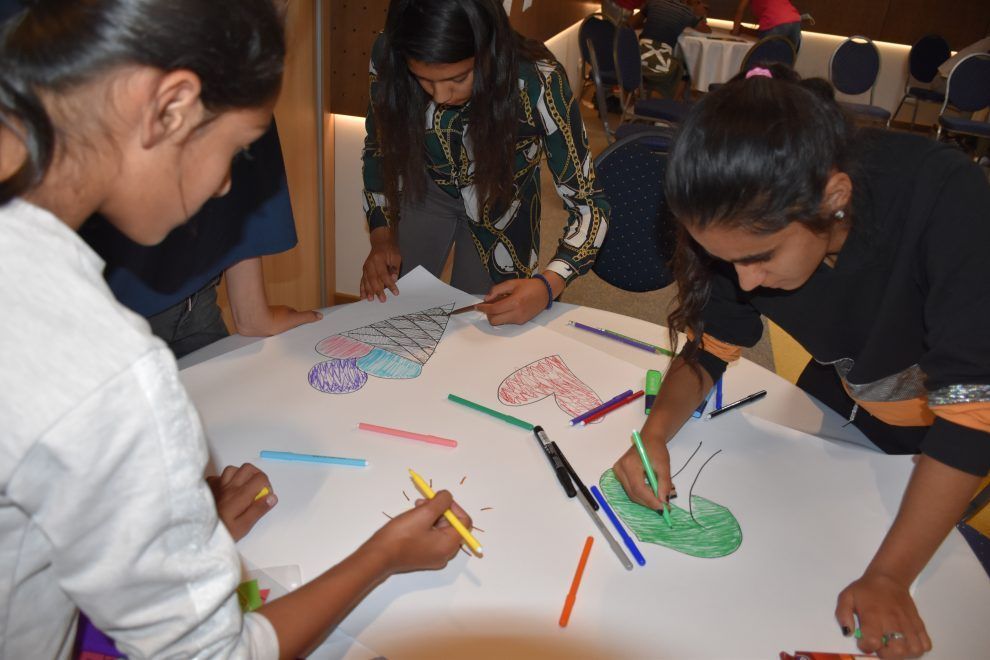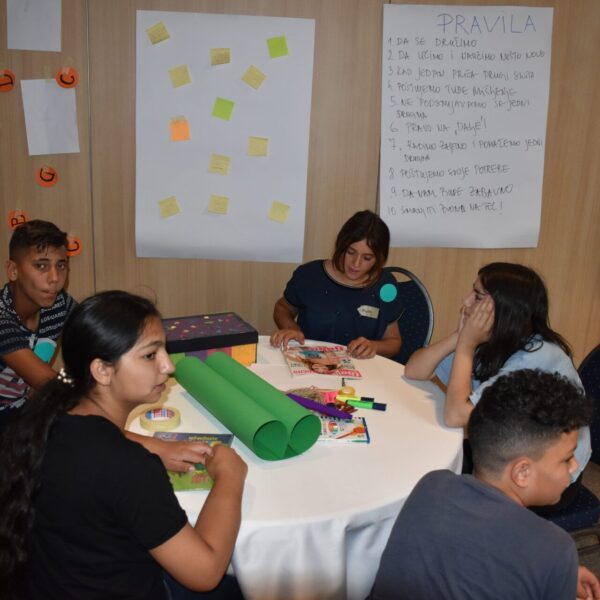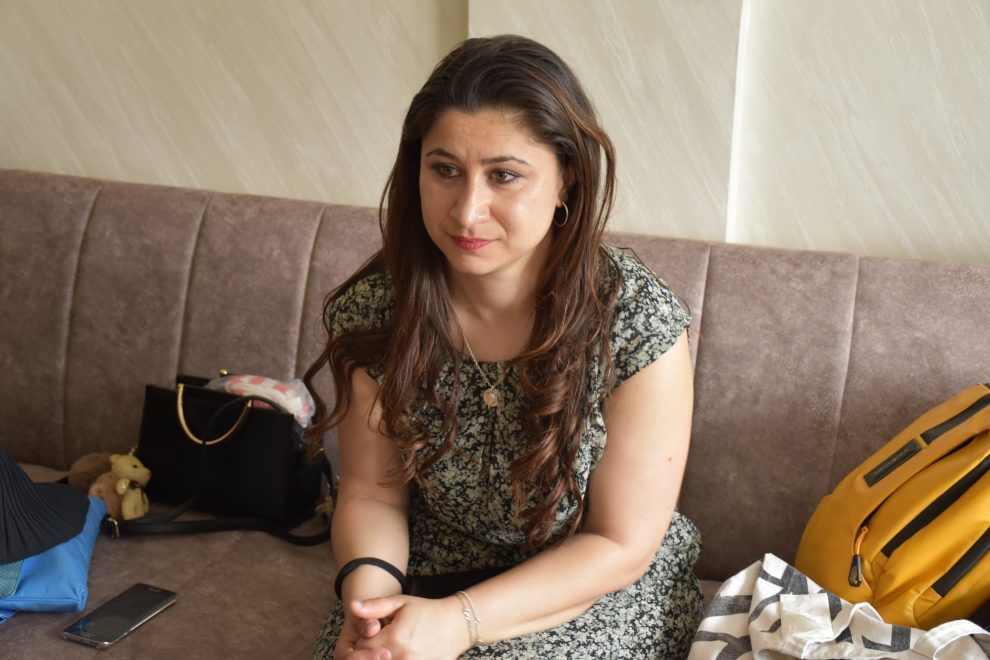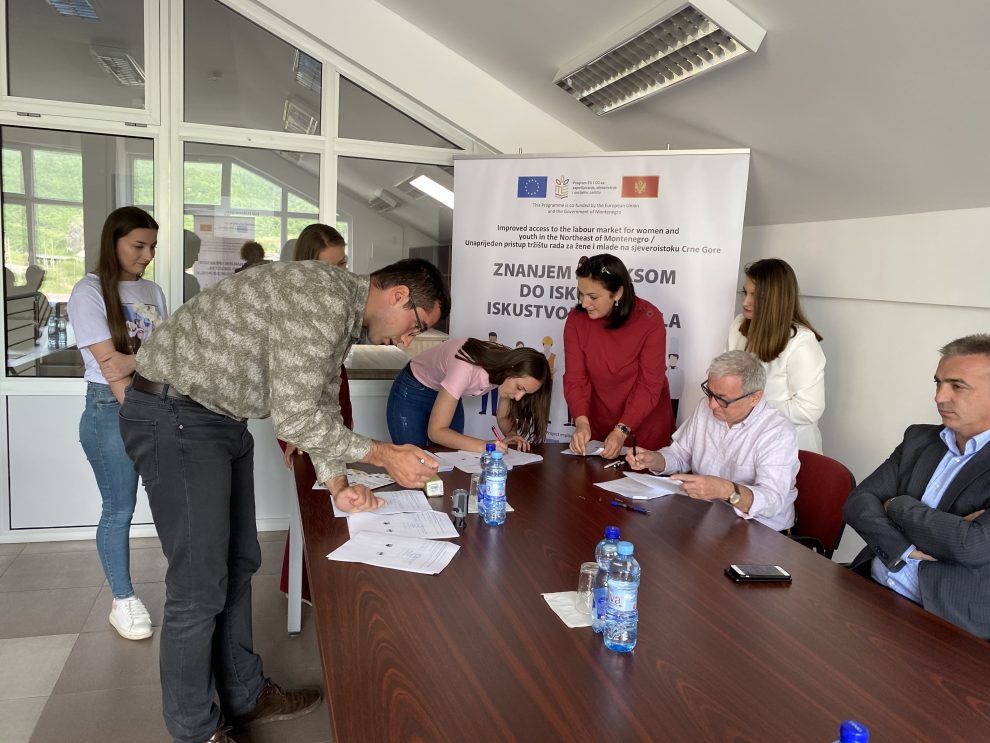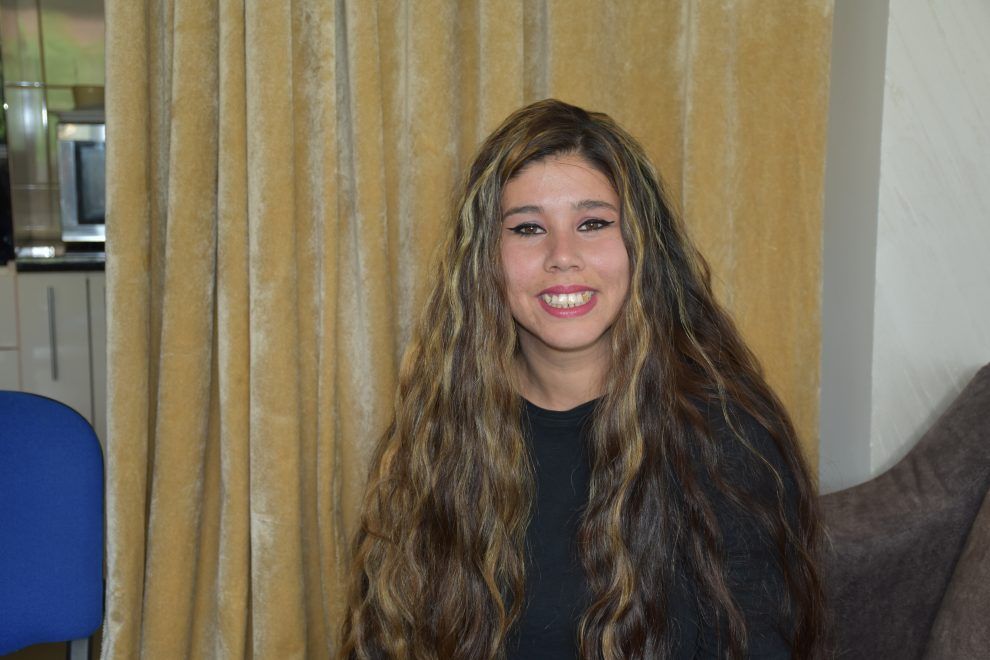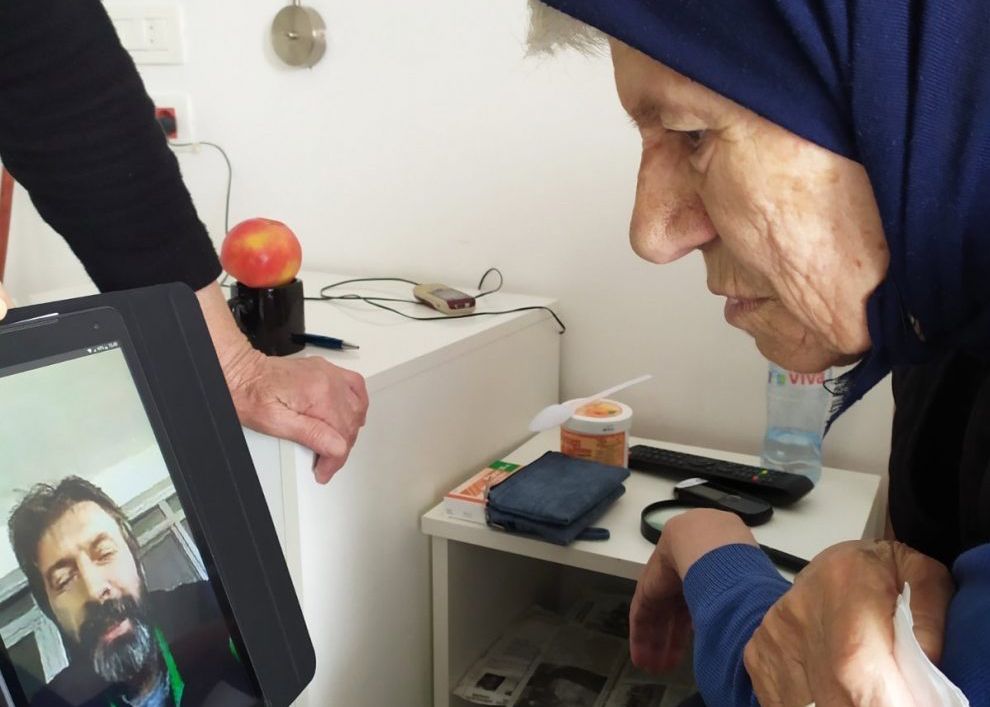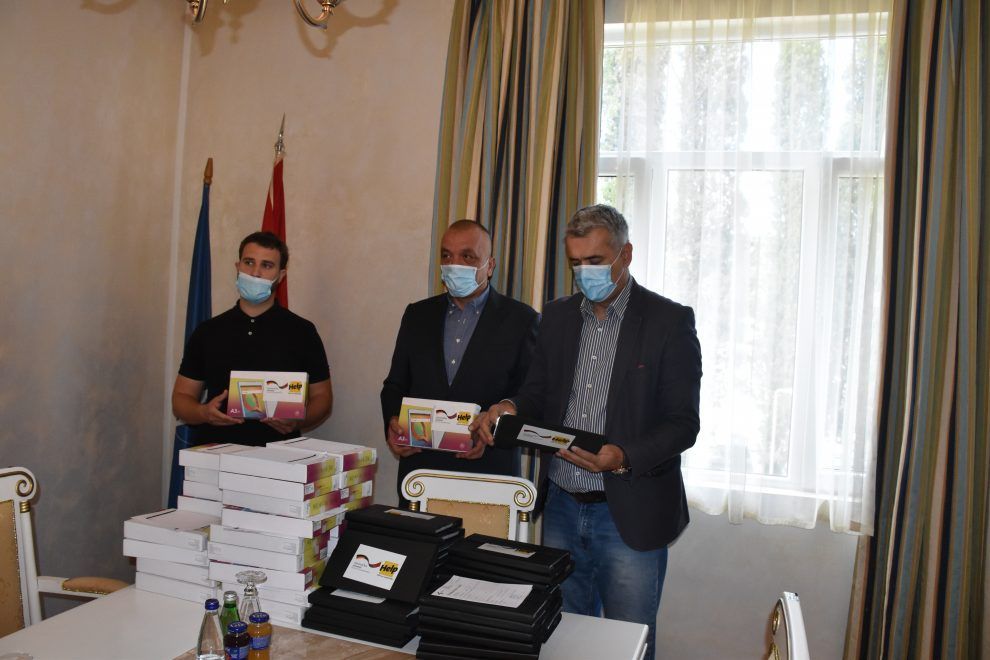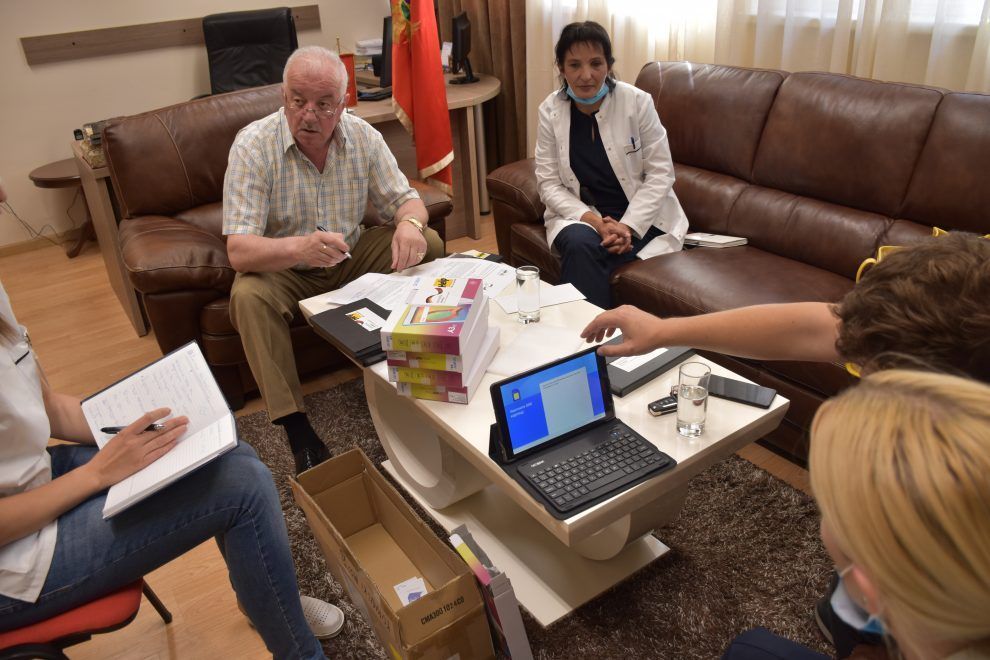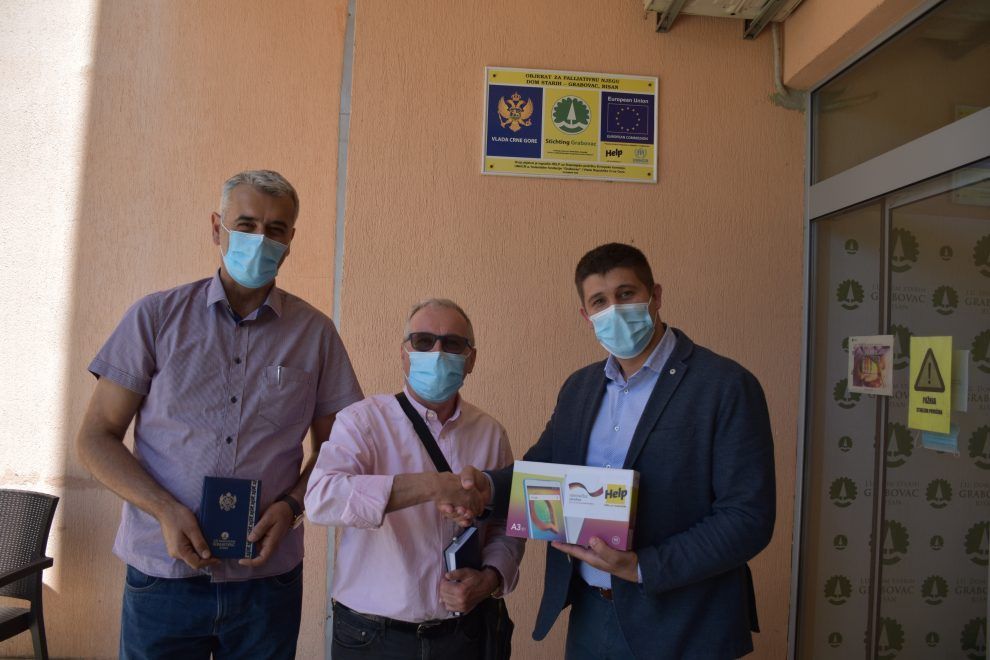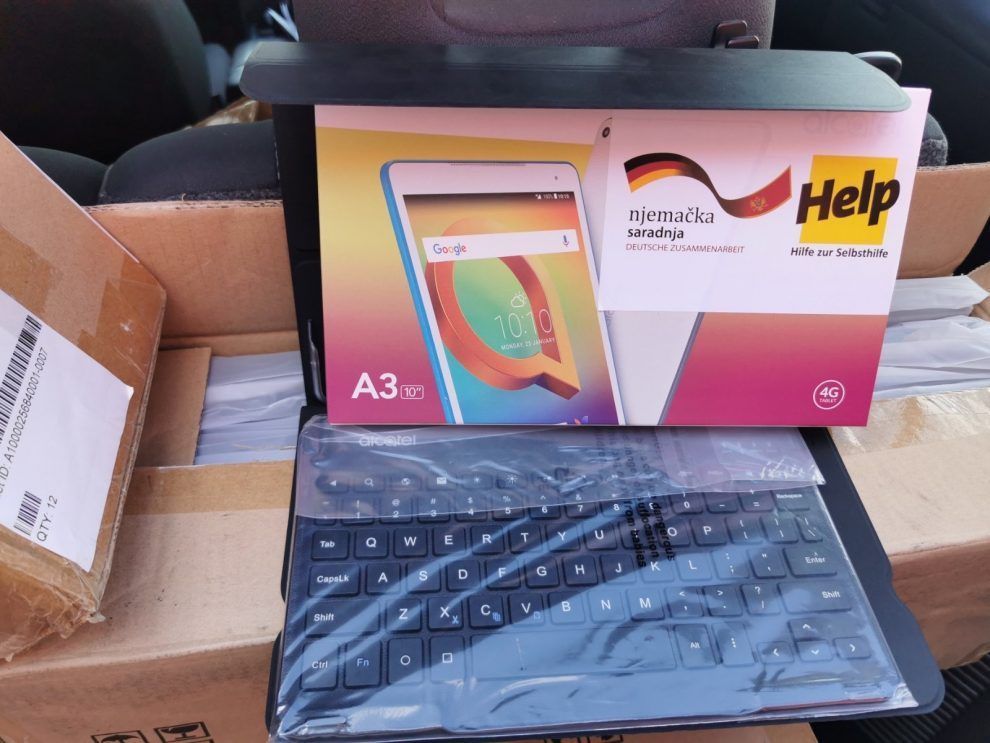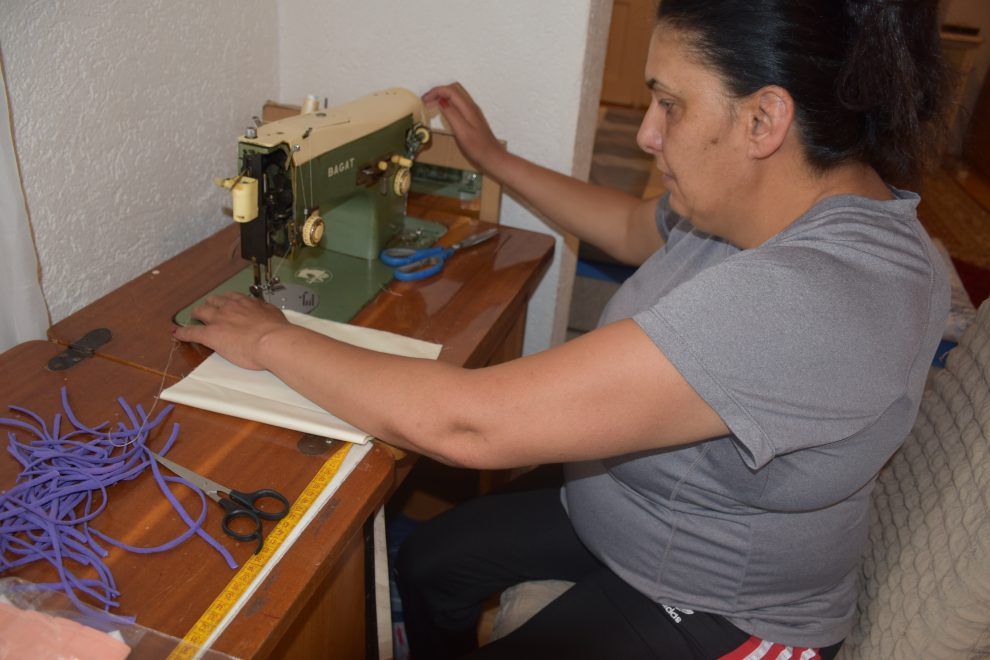25. 05. 2020
Mirsada Advijaj, a Roma activist who has been engaged for years in various projects to improve the position of the Roma-Egyptian population (RE) and their more efficient inclusion in Montenegrin society, even used her hobby – sewing, to help the RE community during the coronavirus pandemic in Montenegro.
For the past two months, Advijaj has been sewing reusable masks in one corner of her bedroom, first for the RE population in Nikšić in coordination with the young activist Nardy Ahmetović from the Center for Affirmation of the Roma-Egyptian Population (CAREP), who is also a Red Cross volunteer.
After she finished sewing for them and distributed the masks in Nikišić, it was Podgorica’s turn, where Help has provided her with materials for sewing of masks, as part of our campaign to provide emergency assistance to the RE population, that is funded by the German government.
As she told us during the conversation, she used her old Bagat machine, that she got from her sister and that she used to sometimes fix, remake, undercut or shorten something for herself, her relatives, friends and neighbors. She used it to sew masks which have suddenly become one of the most sought after products in the world during the coronavirus pandemic. It was almost impossible to find the masks at first, and then their price started to rise – which made them practically inaccessible for the RE population, which is a vulnerable category and in a difficult socio-economic situation in Montenegro as well as everywhere else in the world.
“When there was a shortage of masks at the beginning, I have respected the measures prescribed by the National Coordination Body (NCB) to the maximum. On very rare occasions when I needed to leave the house during that period, I sewed a mask for myself so I could go to the store to shop from time to time. I talked to Nardy Ahmetović during those days and we talked about how people are struggling and I told him that I often sew for himself, so he asked me if I could sew about 50 masks for them in Nikšić, which would be very important since they had no masks there at the time. I had some of my own materials and that’s how I started. ”
As everyone heard that Mirsada Avdijaj sews and donates masks, there were more and more requests addressed to her, from her surroundings.
“After that, people from here in my neighborhood as well as from the wider area of Zabjelo started asking if I could sew masks for them as well. I used up all the material I had at home, and then I decided that I had to help the RE population here in Podgorica, since I am a local mediator of the Center for Civil Initiatives from Niksic. It was not logical for me not to help the community here in Podgorica, and so I turned to your mediator Ibrahim Tatari, asking if he could help me with the procurement of materials because I had already used everything I had of my own materials. Then you from Help jumped in and helped me with the purchase of sewing materials. ”
Just when we visited her, Ms. Avdijaj had more than 150 reusable masks (which can be washed and ironed) ready to distribute, packed in threes in bags for distribution in Konik where the RE population in Podgorica predominantly lives.
“I have to tell you that since the NCB measures have eased, I have already gone to Konik where people needed help a couple of times, and on that occasion I distributed a couple of masks on my own initiative. People asked me many questions like ‘are there more masks and when will we get them’. Therefore, we decided that it would be better to make a larger number and to distribute them all at once, so that people would not get angry that someone received one and someone did not. ”
In the past three months she has been sewing the masks herself, because as she says, that way she is most sure that everything will turn out as it should, but that has slowed down somewhat because of her other obligations. Although she learned sewing as a child from her mother and later took a sewing course, she never thought about taking that job seriously. And now it is just a hobby, that has proven to be very useful in these unexpected circumstances.
“I’m not a brilliant tailor, but there are a lot of things that I can do, and this was quite simple and proved to be very useful at the moment. In addition to that, sewing of these masks stopped me from continuously sitting in the house during the strict COVID-19 measures, because I didn’t know what else I could do during that period. This was a useful leisure activity that Nardy inspired me to do “, says Mirsada Avdijaj.
Her primary job is working as a mediator and trustee person for the rights and inclusion of Roma and Egyptians at the Center for Roma Initiatives in Niksic; she has previously worked in a kindergarten as an assistant to help them overcome the language barrier of preschool children. She is helping her community solve problems in health, education, and prevent early marriages and domestic violence.
“But I can say that everything fits in my job description of a RE mediator and an trustee person, because you have a lot of people who need different kinds of help: there are people who need help filling out a one-time financial aid application, collecting documents and getting a workbook, help with a translator due to the language barrier, so my scope of work is quite broad. Or rather – I am here to help all of them, as much as I can. ”
She began her volunteer engagement a long time ago, together with her friend Behija Ramovic, who now works in the government’s anti-trafficking body. Attending numerous seminars, workshops and training with her, she realized that she could be of benefit to her community. Based on her own experience she says that, although much remains to be done, progress in the inclusion of the RE population is noticeable.
“The first and most important thing that has improved is the education. For example, in 2012 during my work on one project, I had a huge number of children who could not pass the preparation for enrollment in school, but I had a large number of them for enrollment then. There is no need for such projects today because practically every child is enrolled in kindergarten andschool. Since I am also a language assistant, I know that there was a huge number of children who did not speak Montenegrin, but I assisted them in kindergarten as a translator from Albanian to Montenegrin and vice versa, so today practically all children speak Montenegrin thanks to inclusion. In addition, the institutions are now significantly more open to providing assistance than they used to be. ”
According to Avdijaj, a key for the future is to insist and work so that Roma-Egyptian children not only stay in primary education, but also continue their education, which is a slightly bigger challenge.
“It is very important that children not only stay in primary education, but also continue their education in high school, because this will open other doors and opportunities for their employment outside the existing molds. In addition, I think it is very important that RE population understands that they have rights like everyone else and that they should demand them, they should not think that someone is giving them something but that they are exercising their basic rights just like everyone else. People from the RE population are often unaware of all the rights guaranteed by the constitution and laws, so they often do not fight for them. ”
Eventually we went back talking about sewing masks.
Ms. Avdijaj says that she is ready to continue sewing, but we have all expressed hope that it wont be necessary anymore. For now, they are still sewing in the color in which the masks are most sought after, the neutral color of ice, but she hopes that it will end there and that there will be no second wave of the pandemic.
However, masks are still in high demand because although NCB measures against the spread of the coronavirus pandemic have eased, citizens are still required to wear masks in all enclosed spaces.
A day later, Ms. Avdijaj distributed the masks to the citizens of Konik with our mediators Ibrahim Tatari and Dijamant Pajazitaj.
Mirsada Avdijaj made reusable masks within Help’s regional project “Support to socio-economic stability in the Western Balkans region 2019-2020” that is funded by the German Foreign Ministry.
Biljana Jovićević
